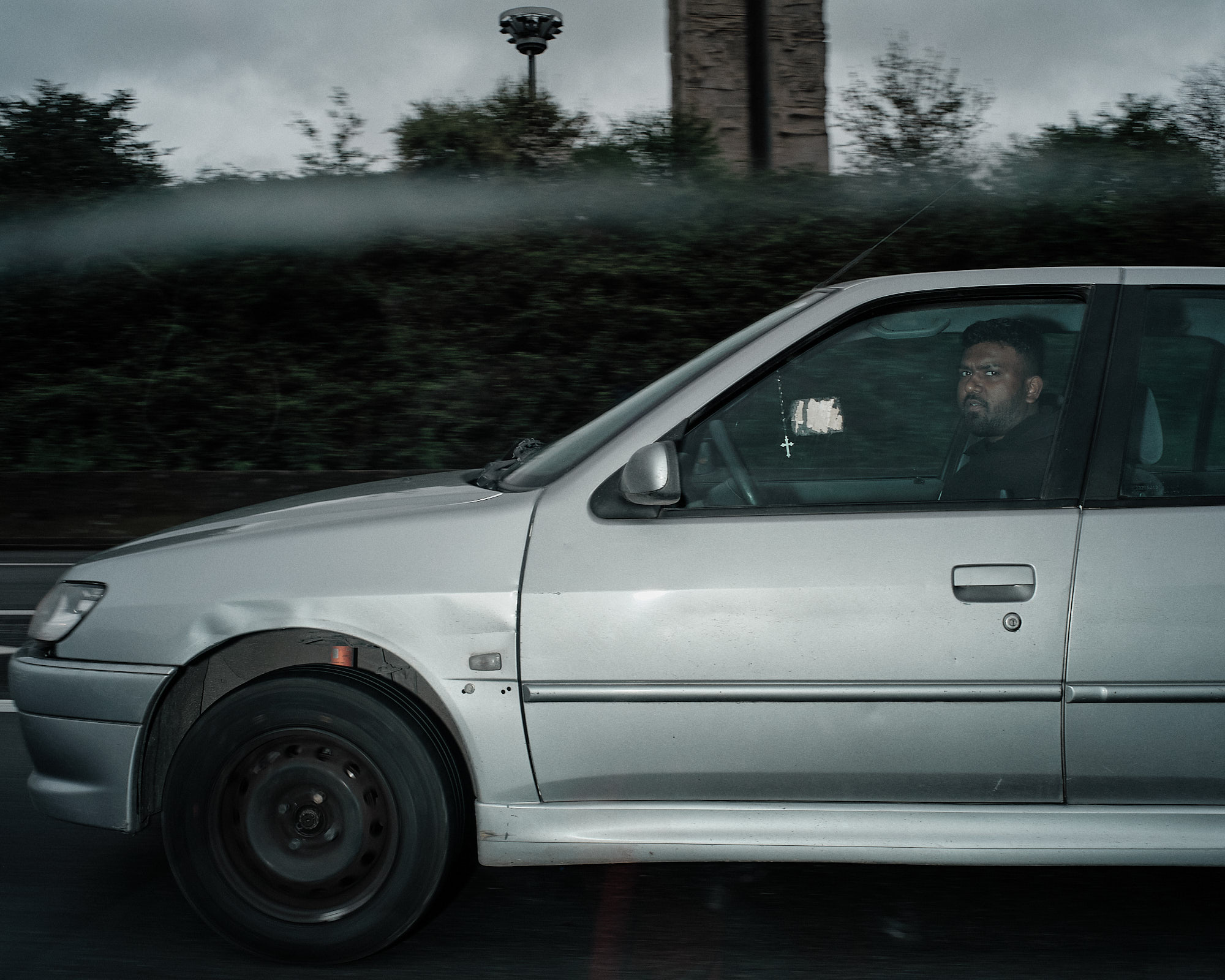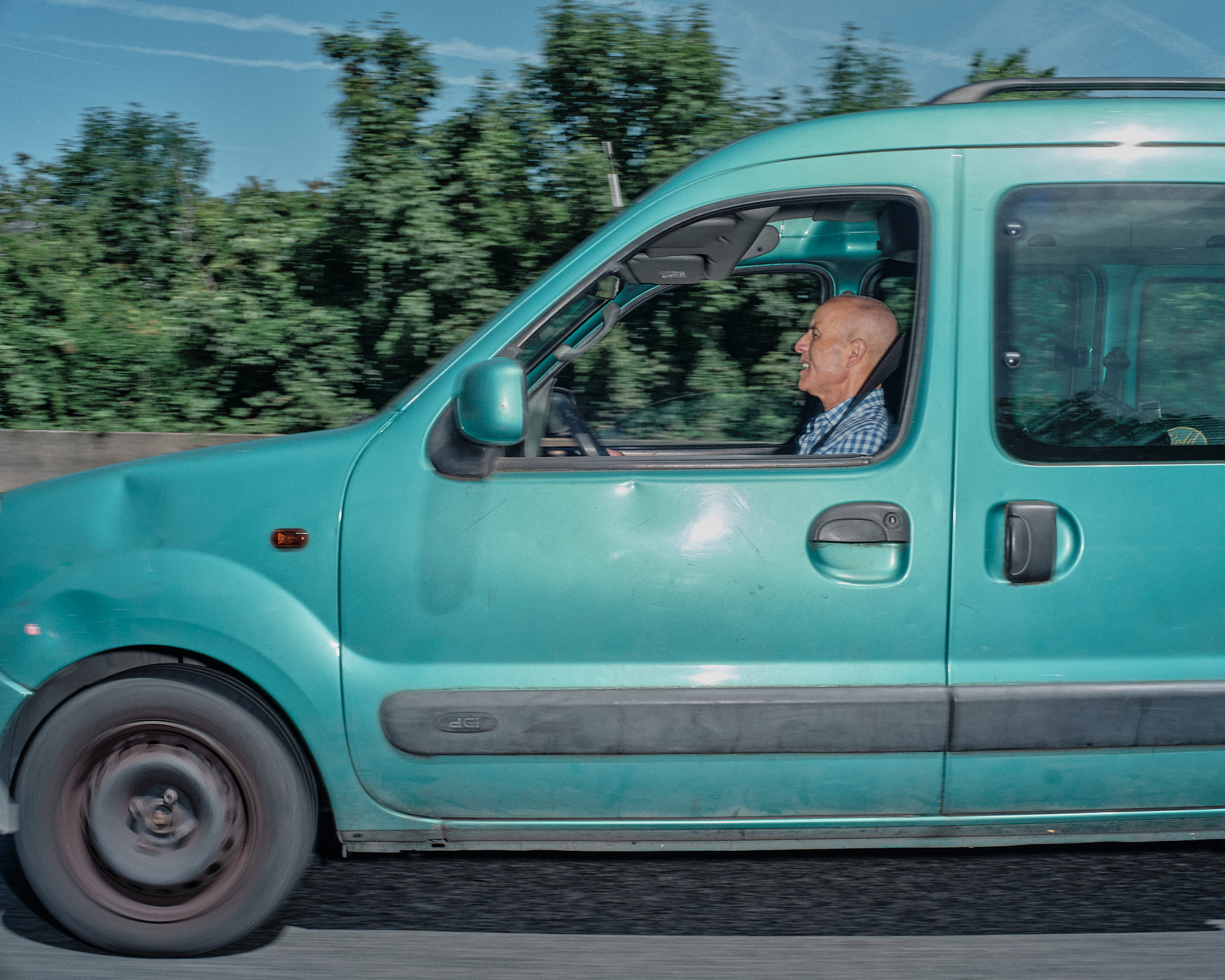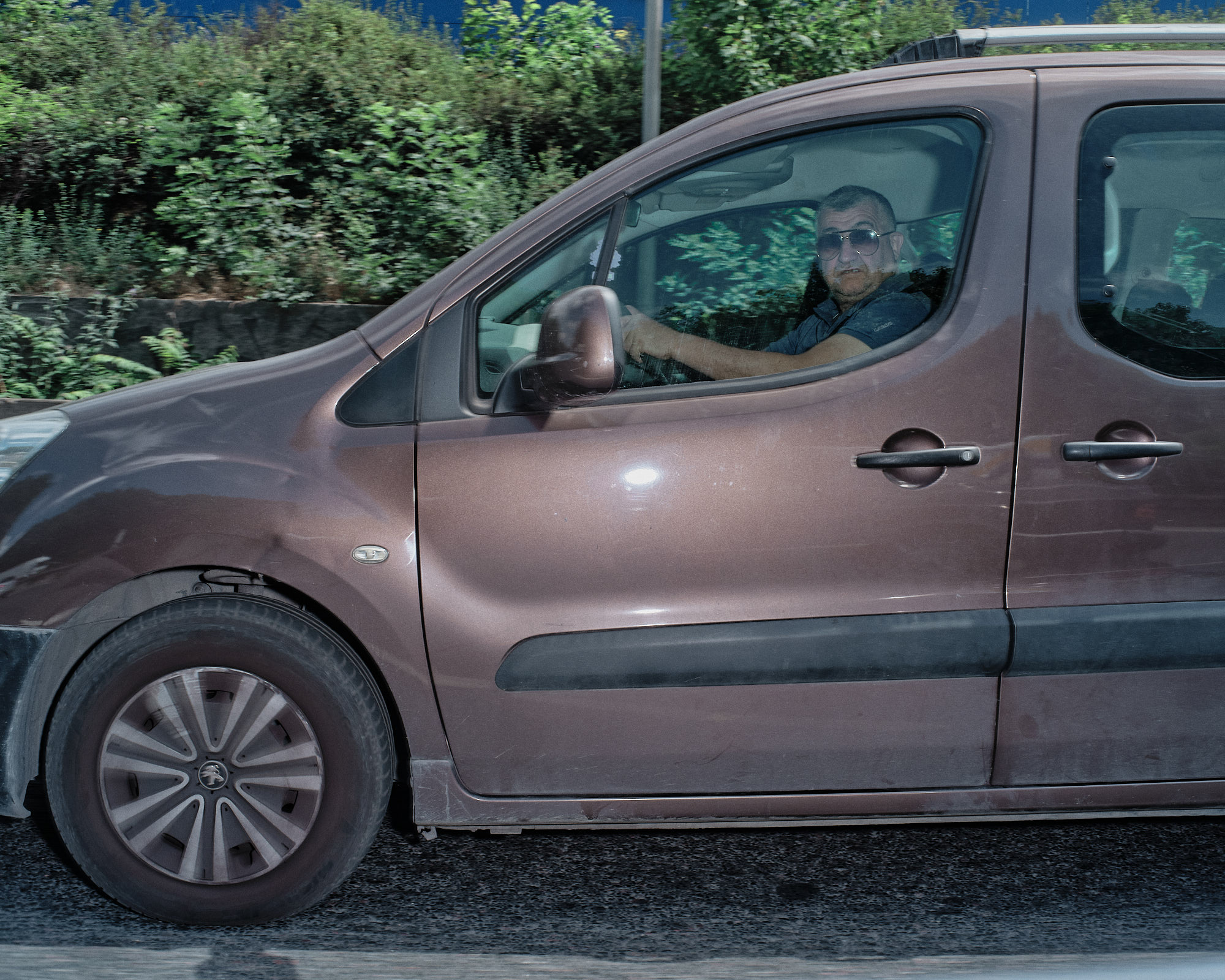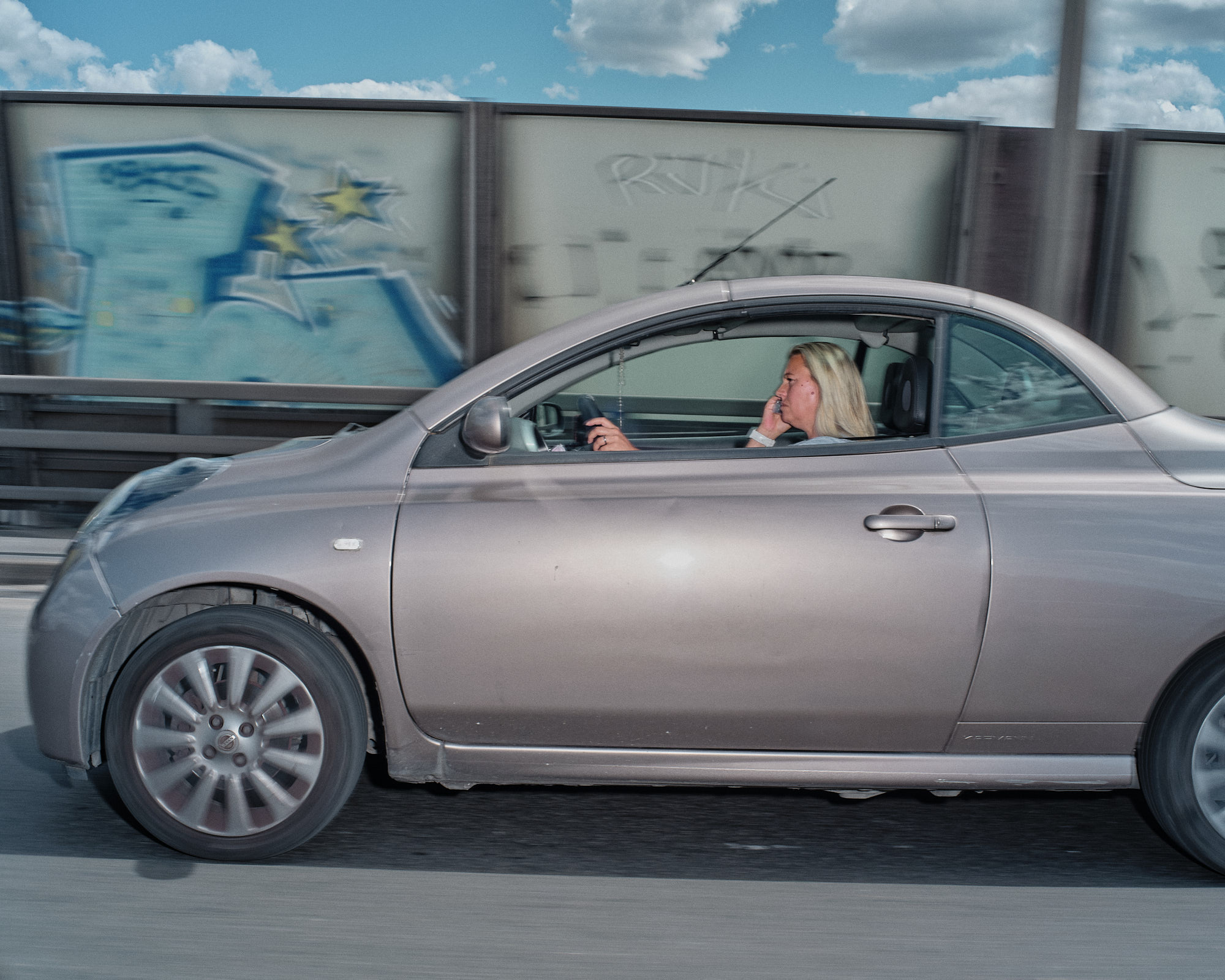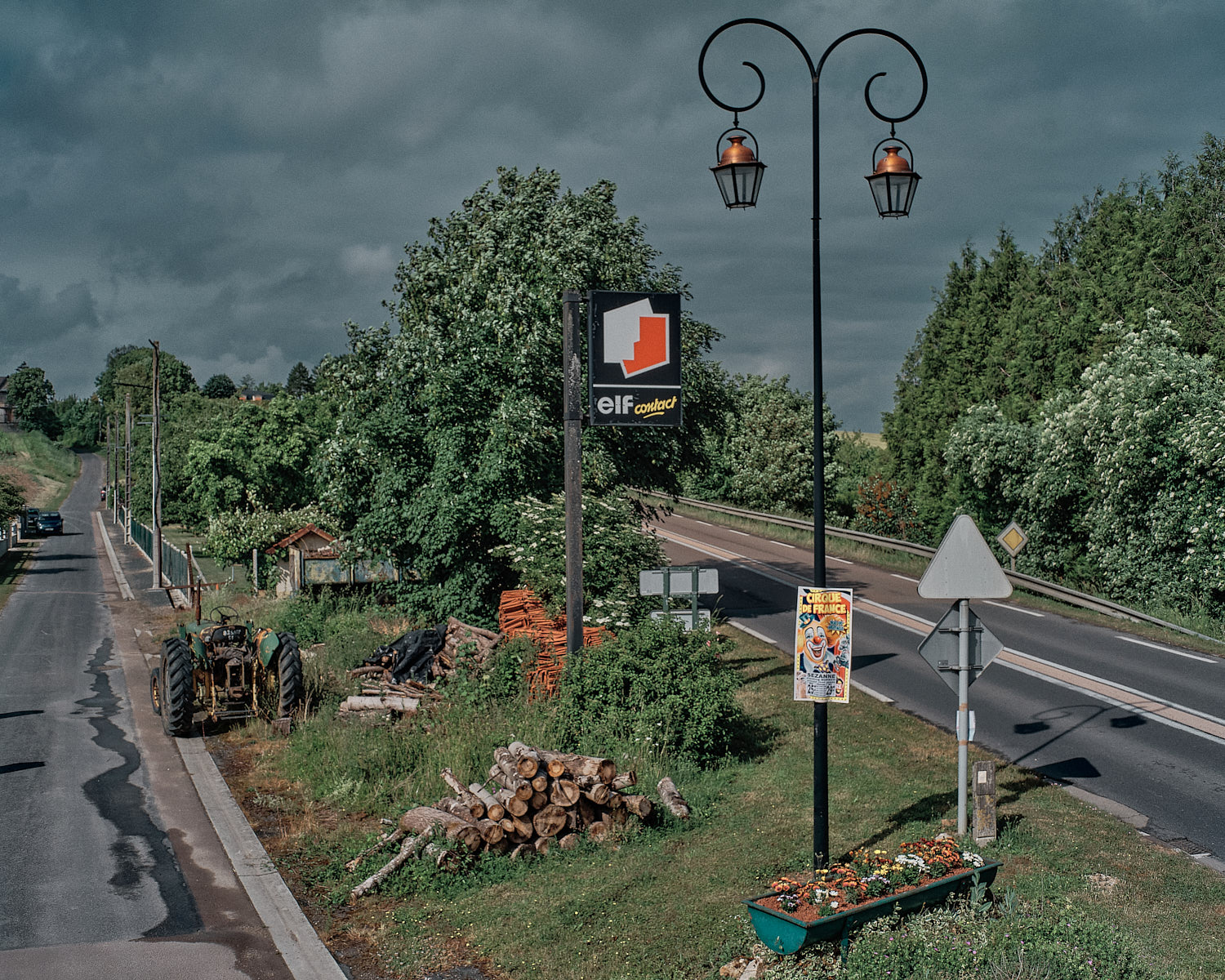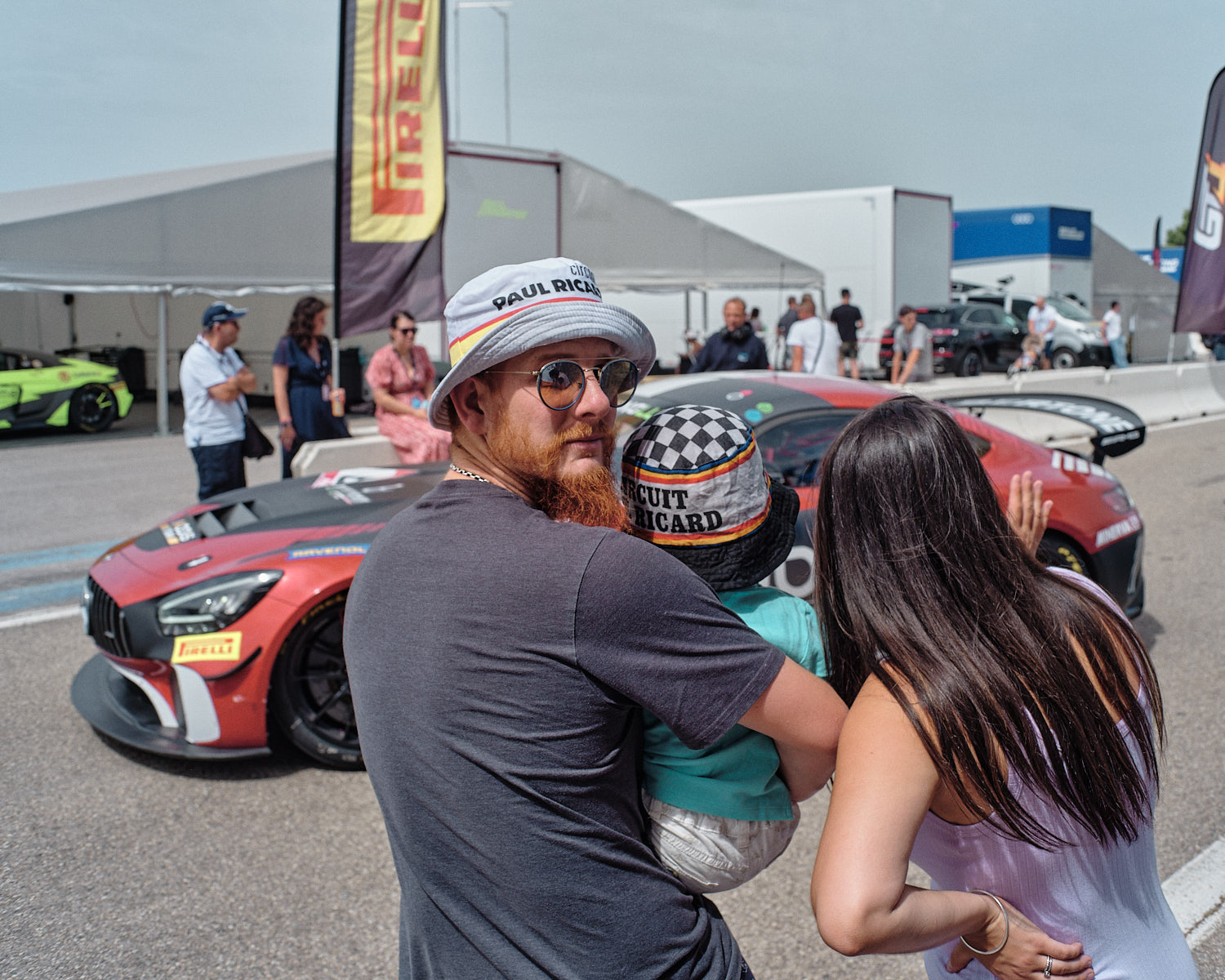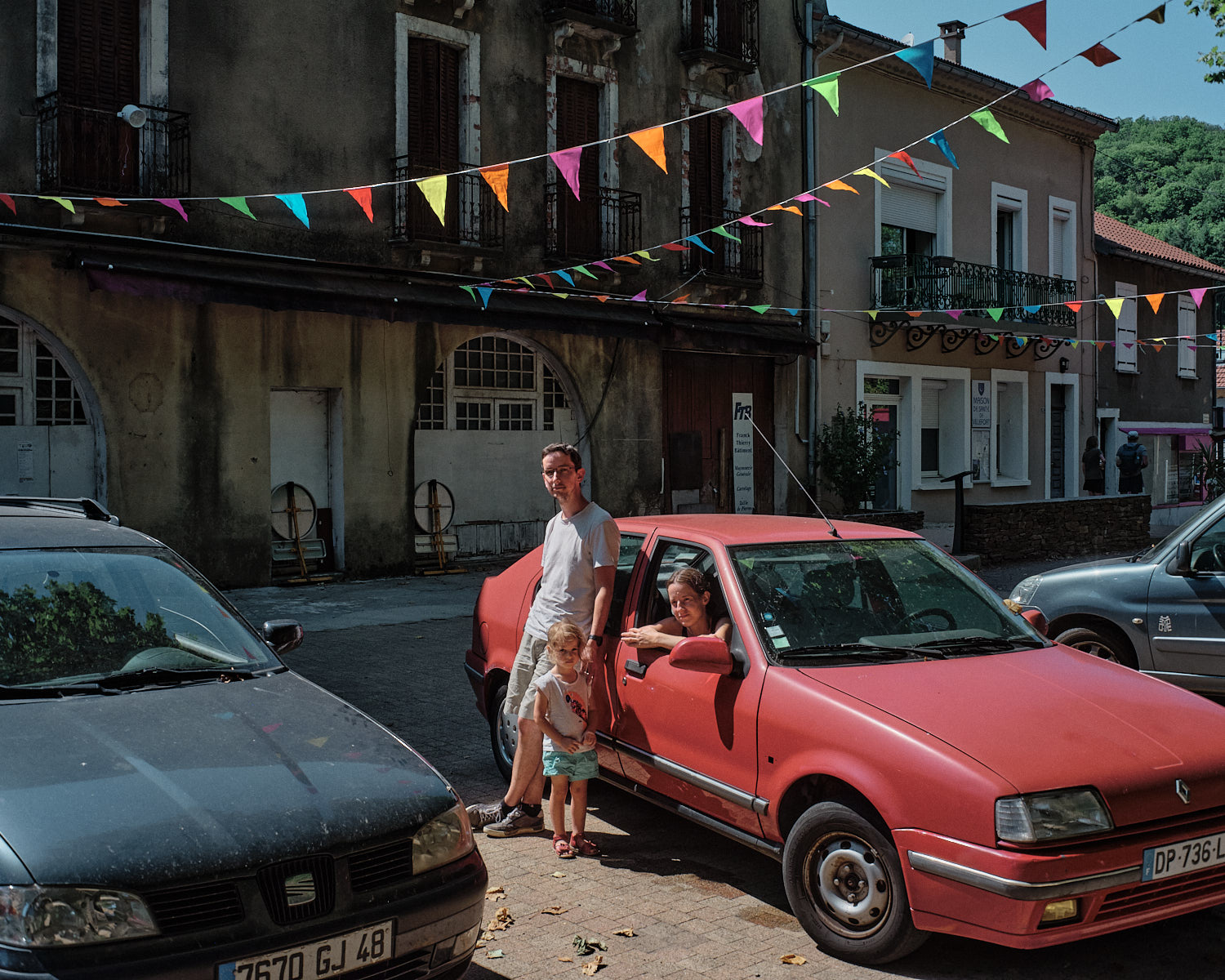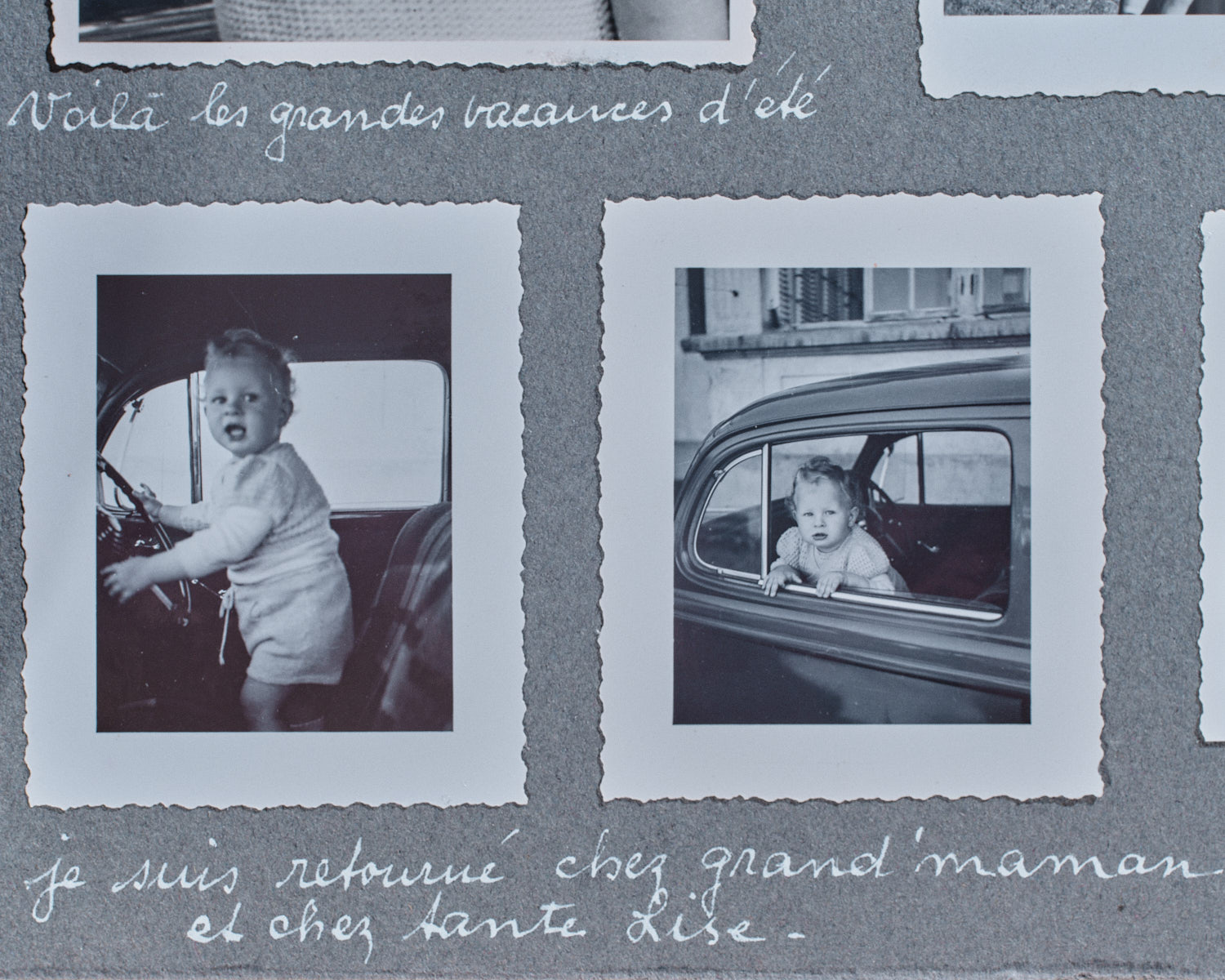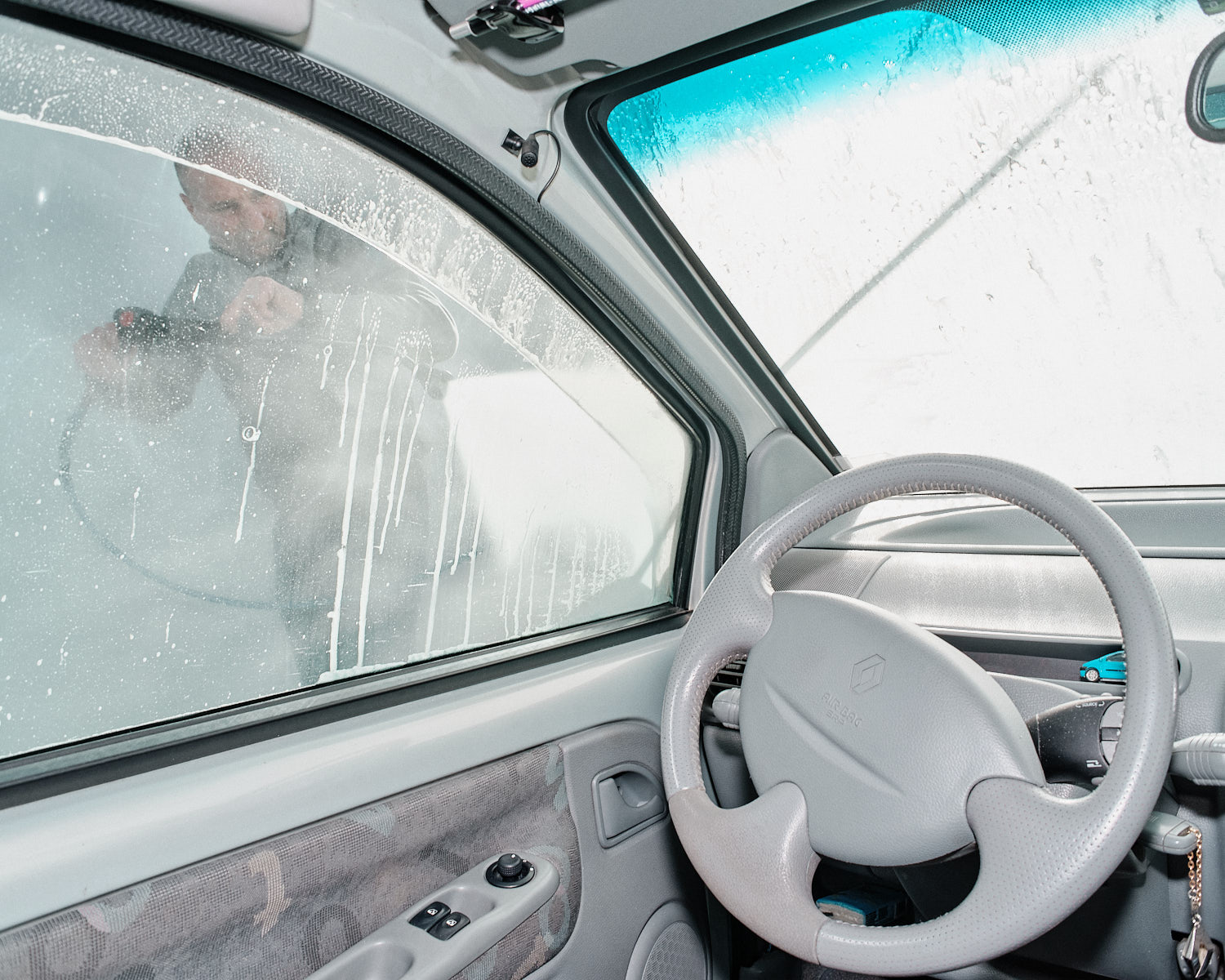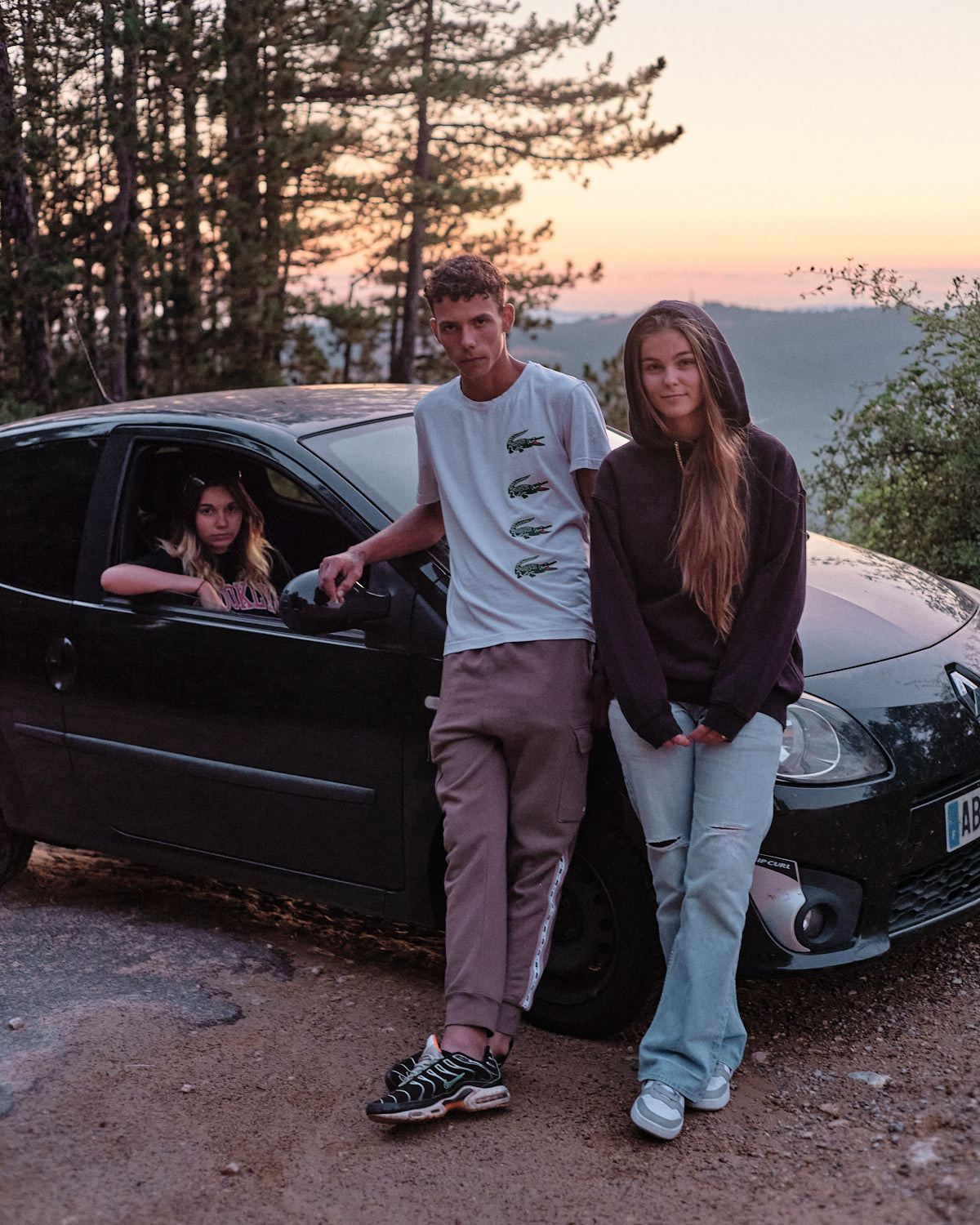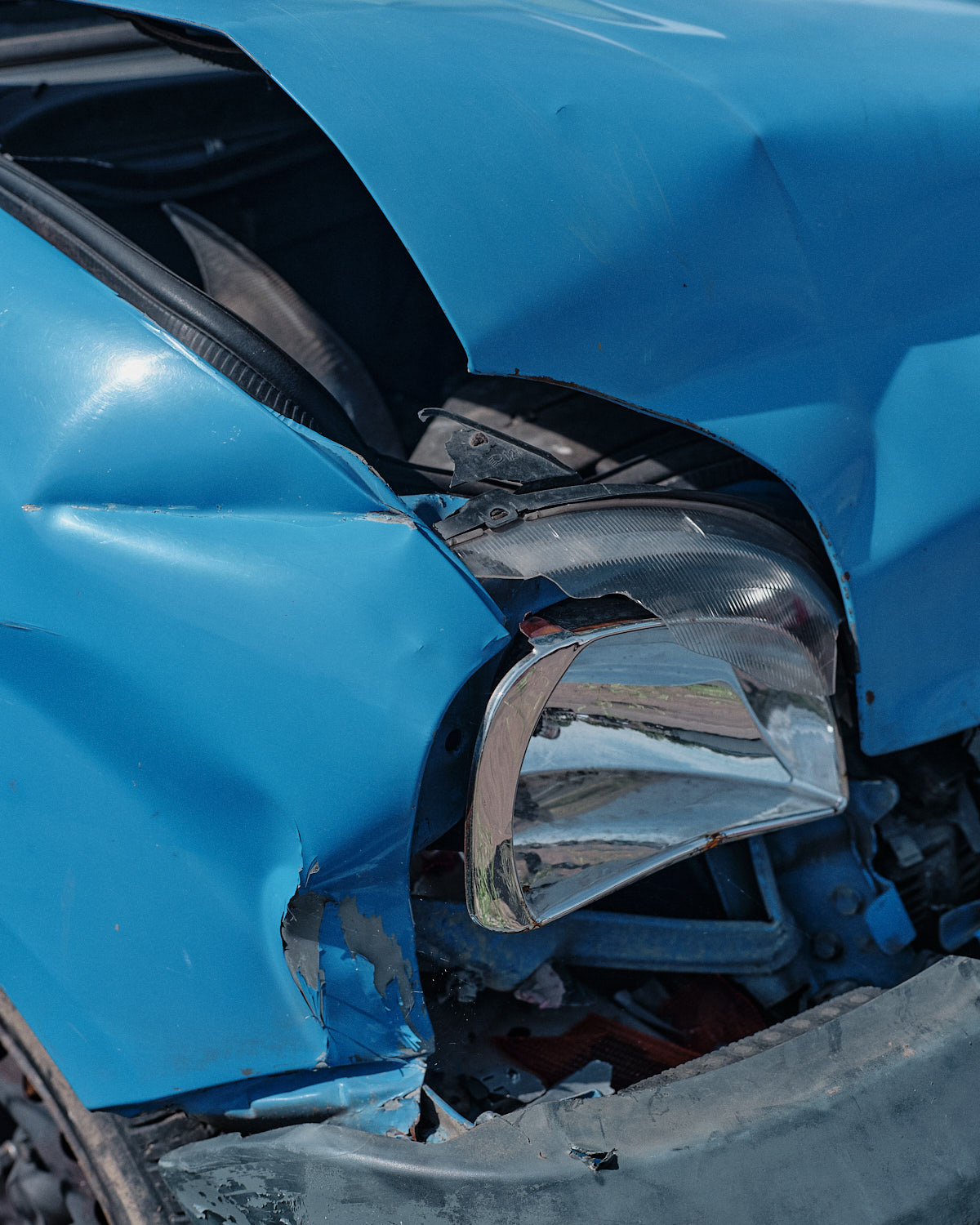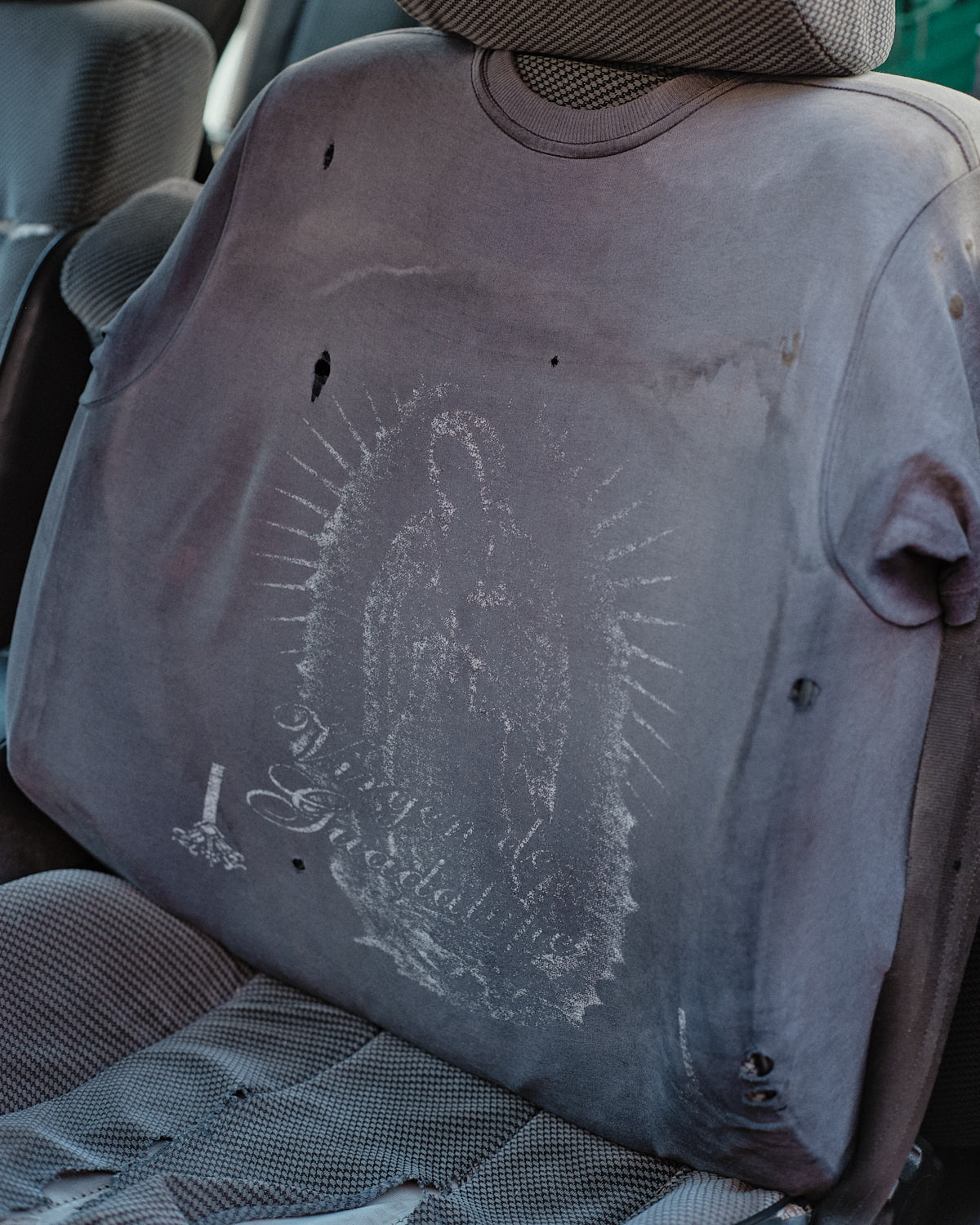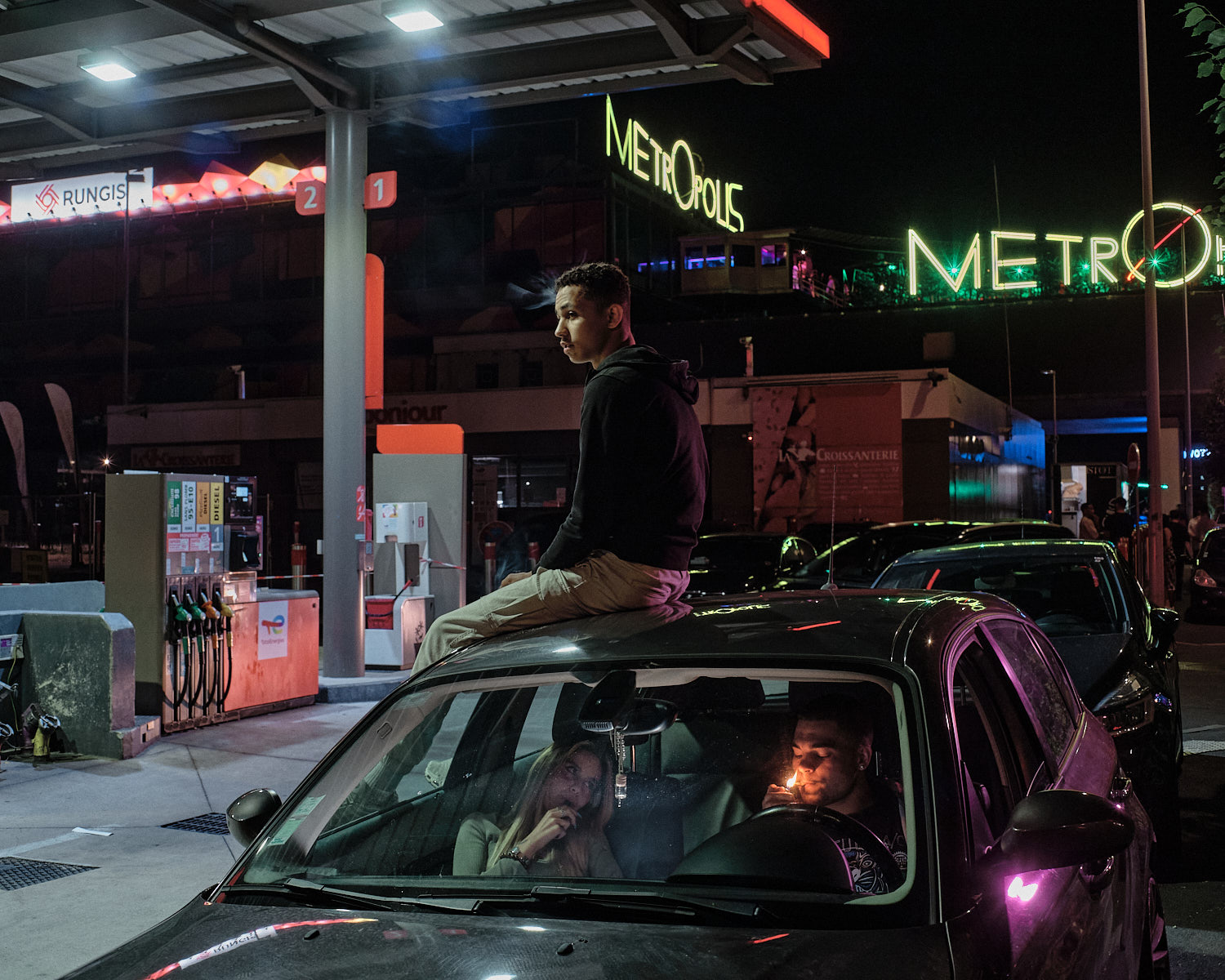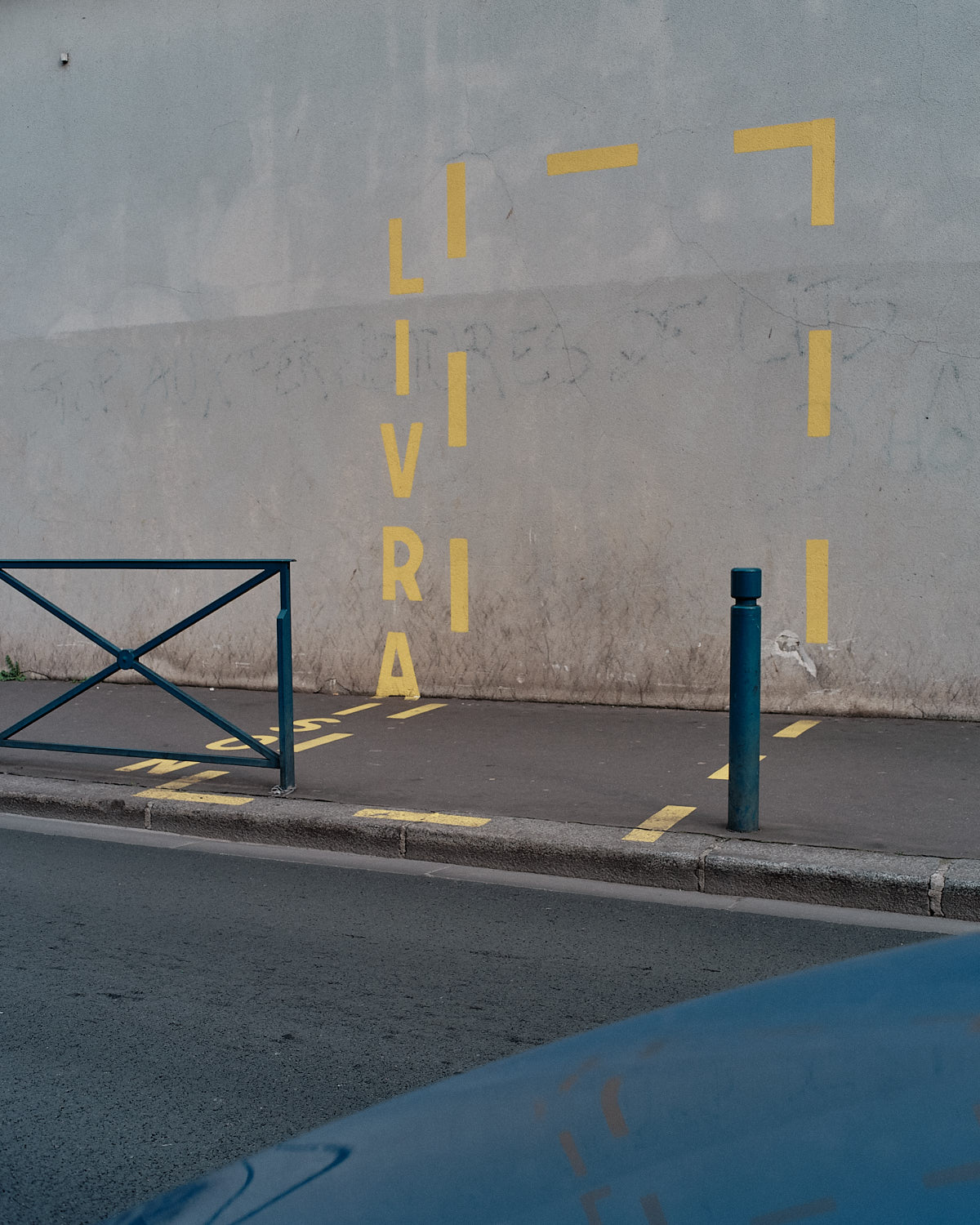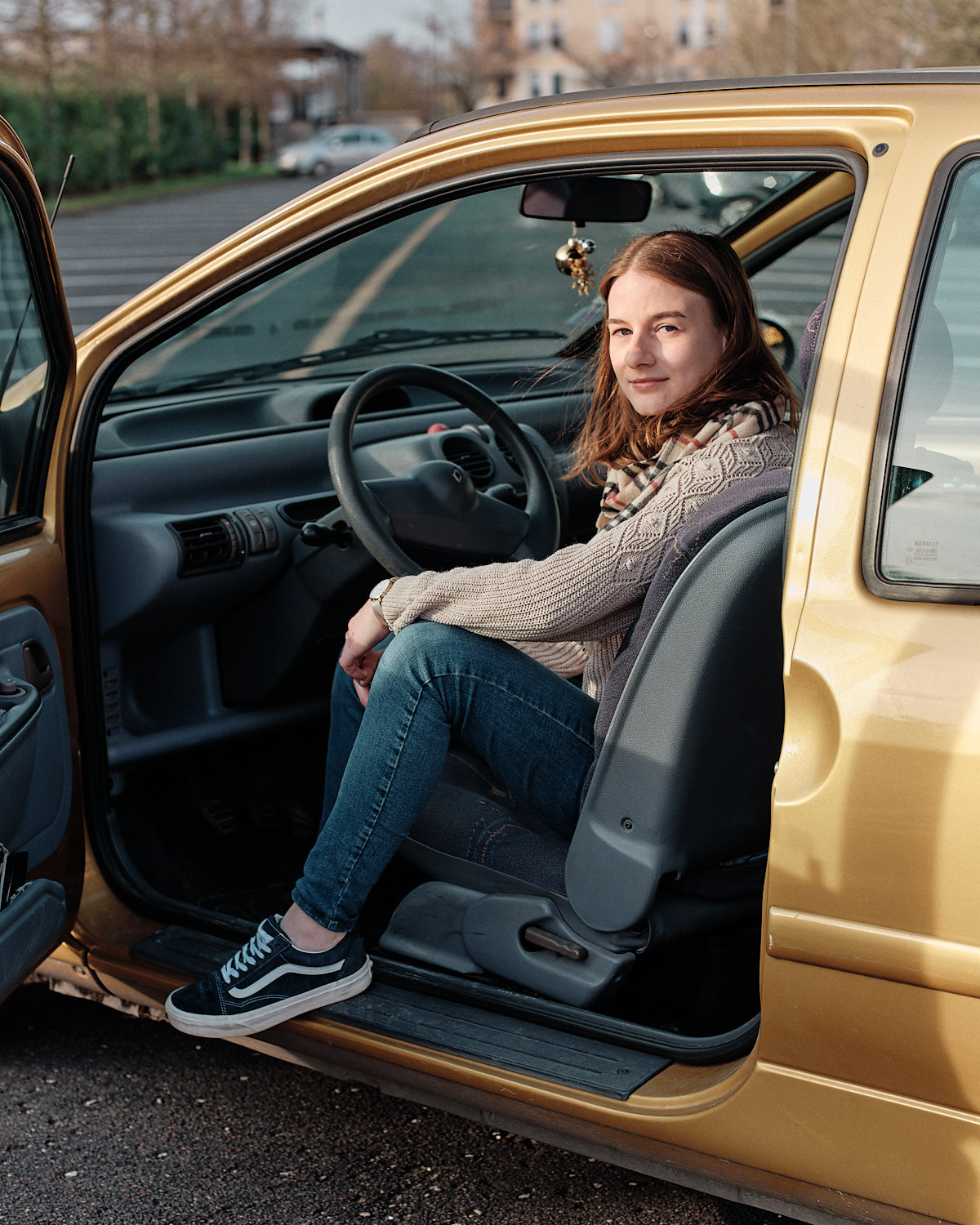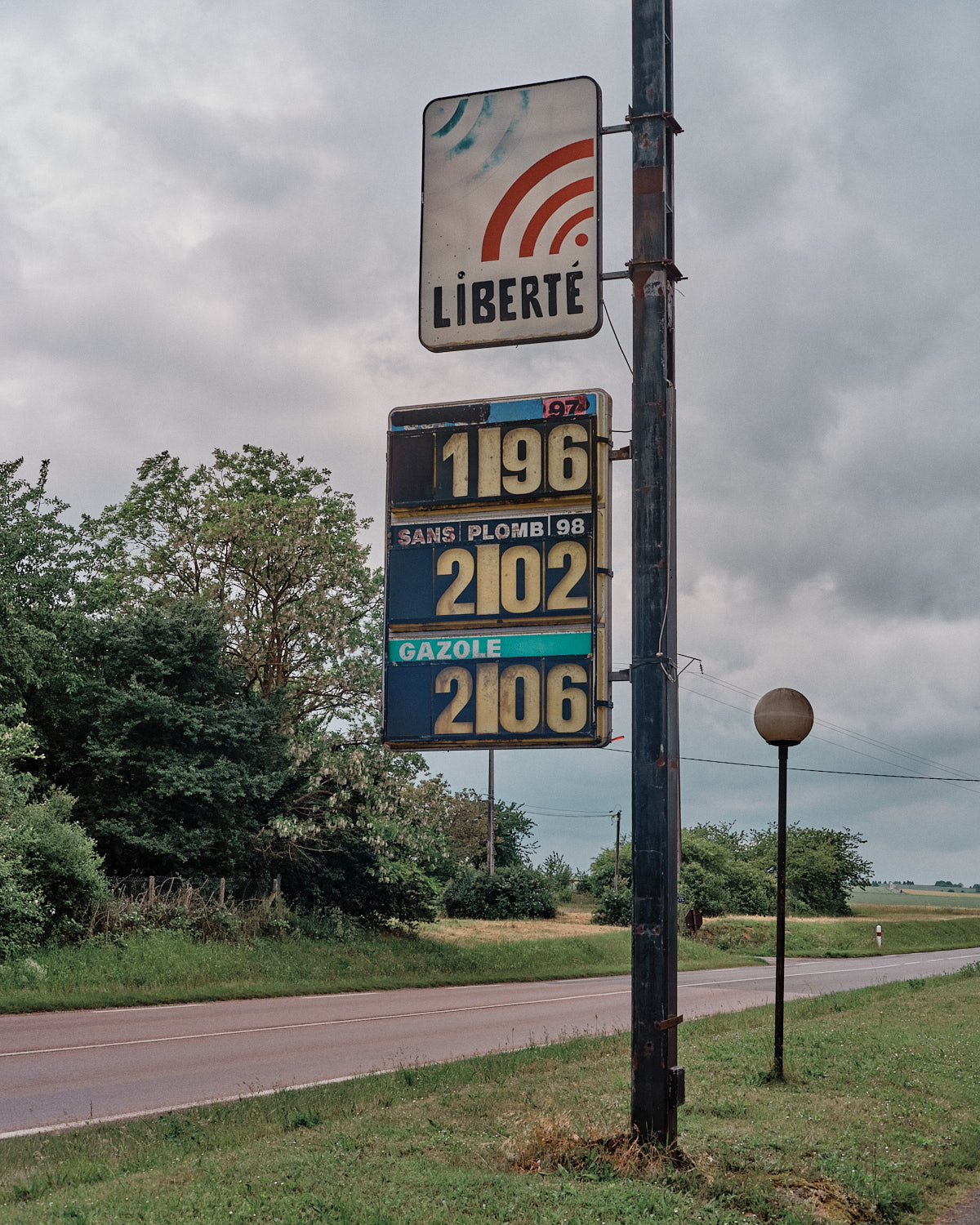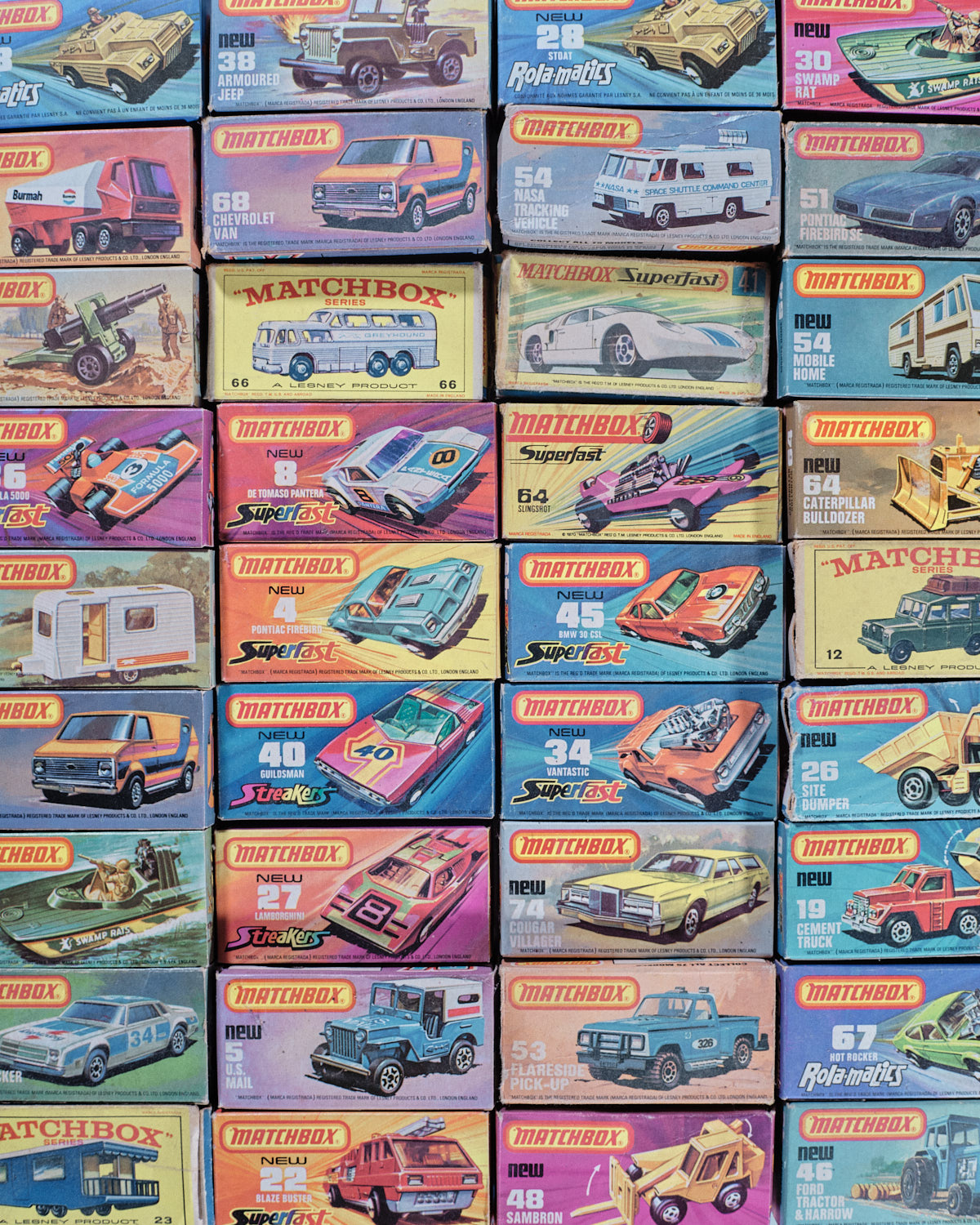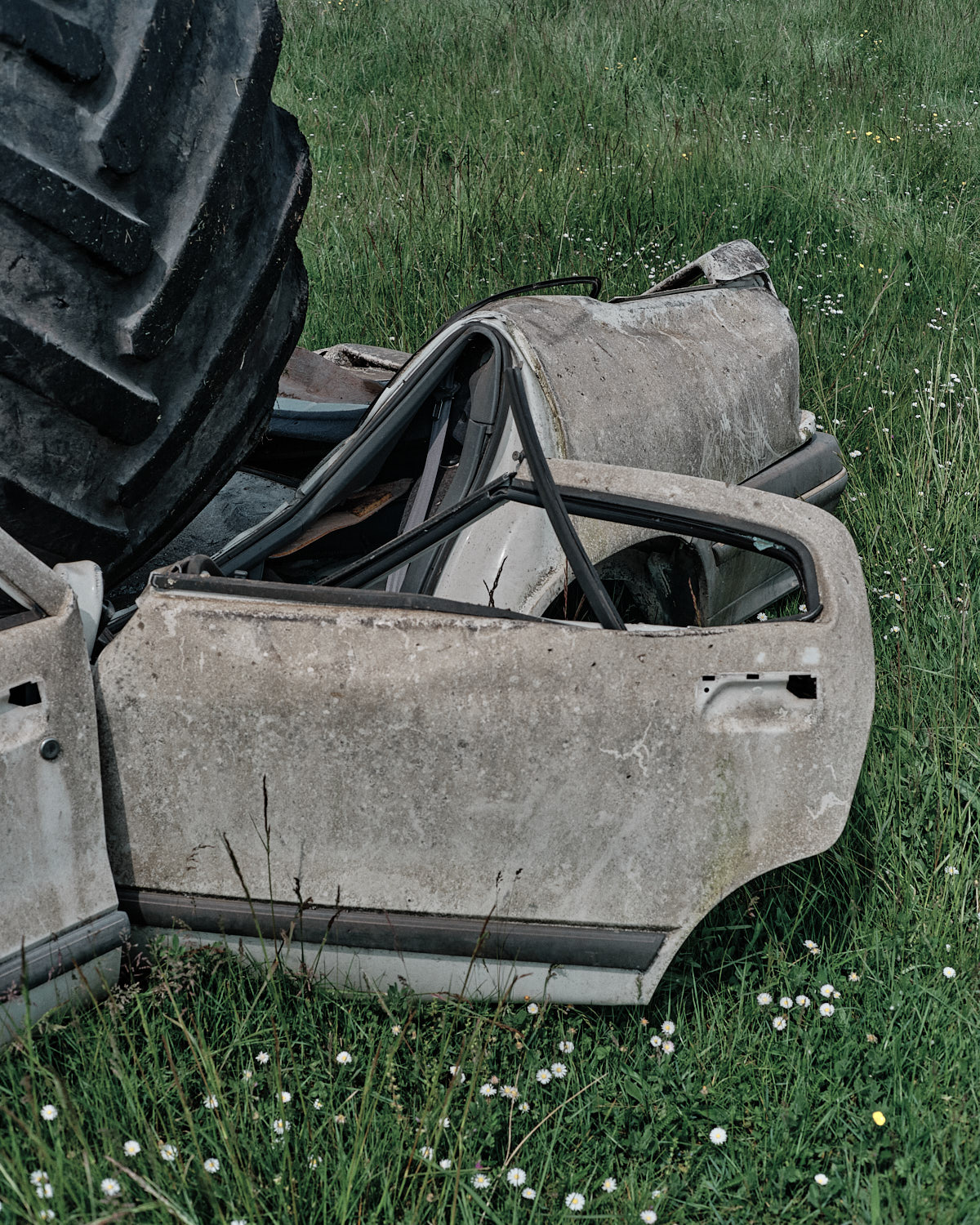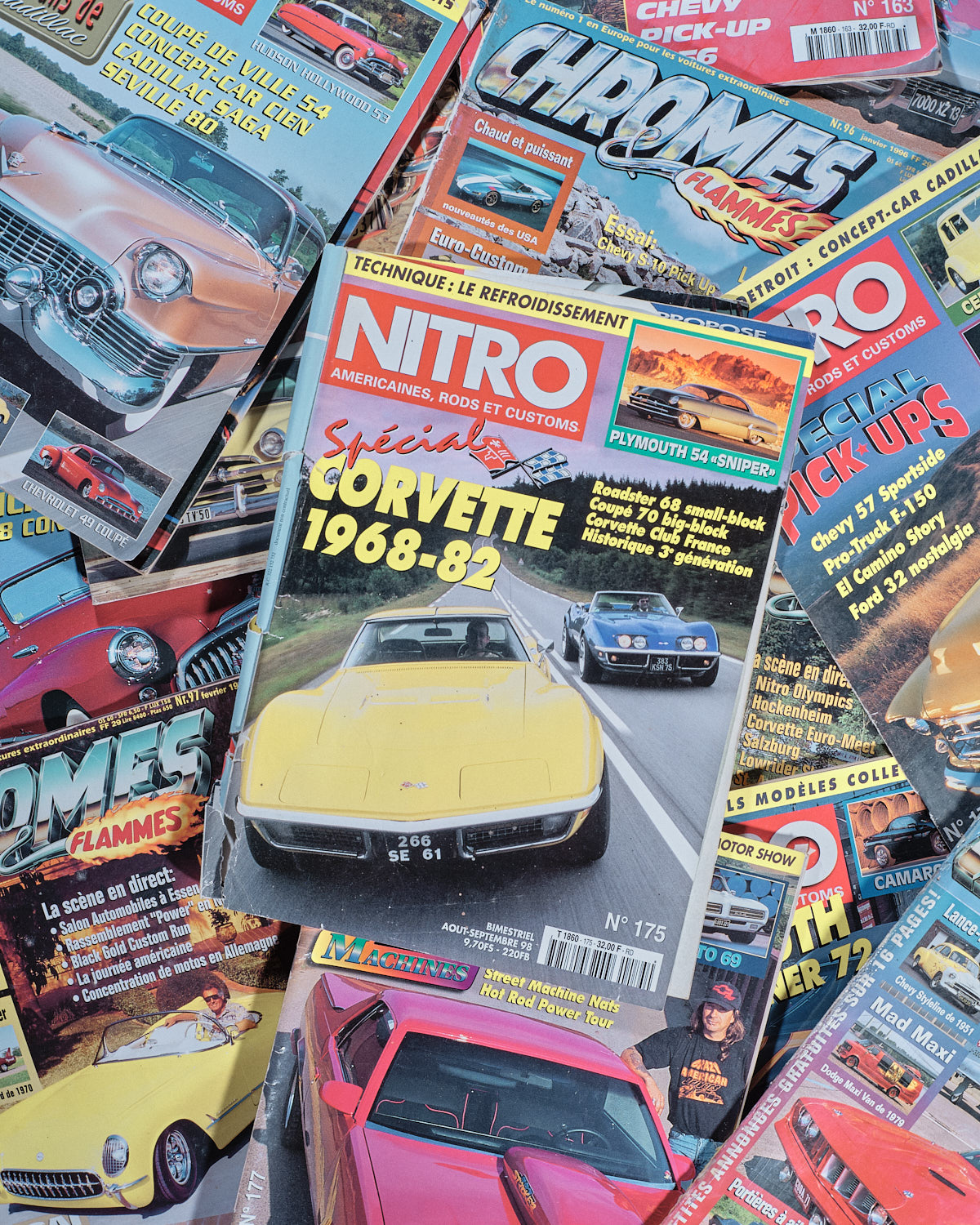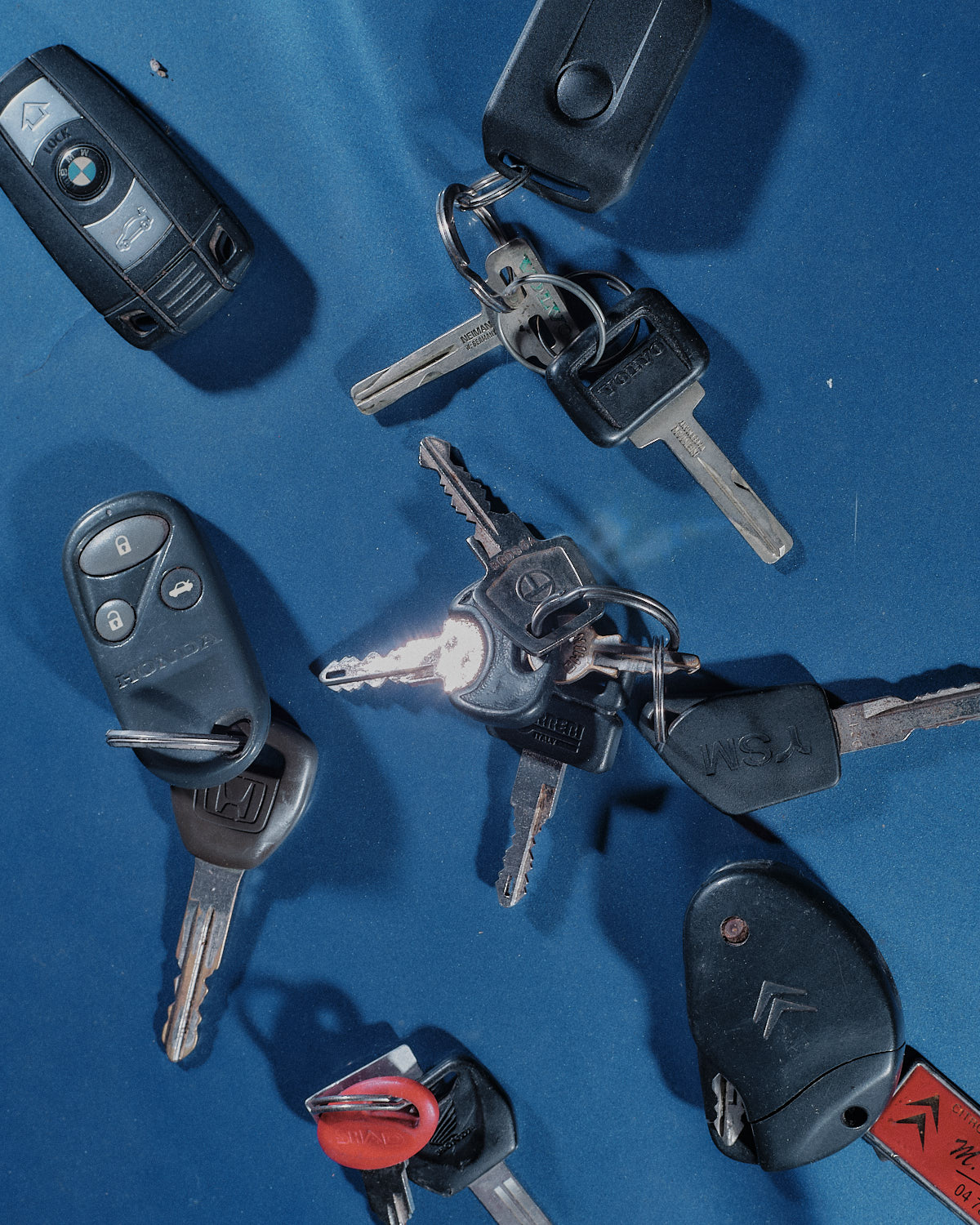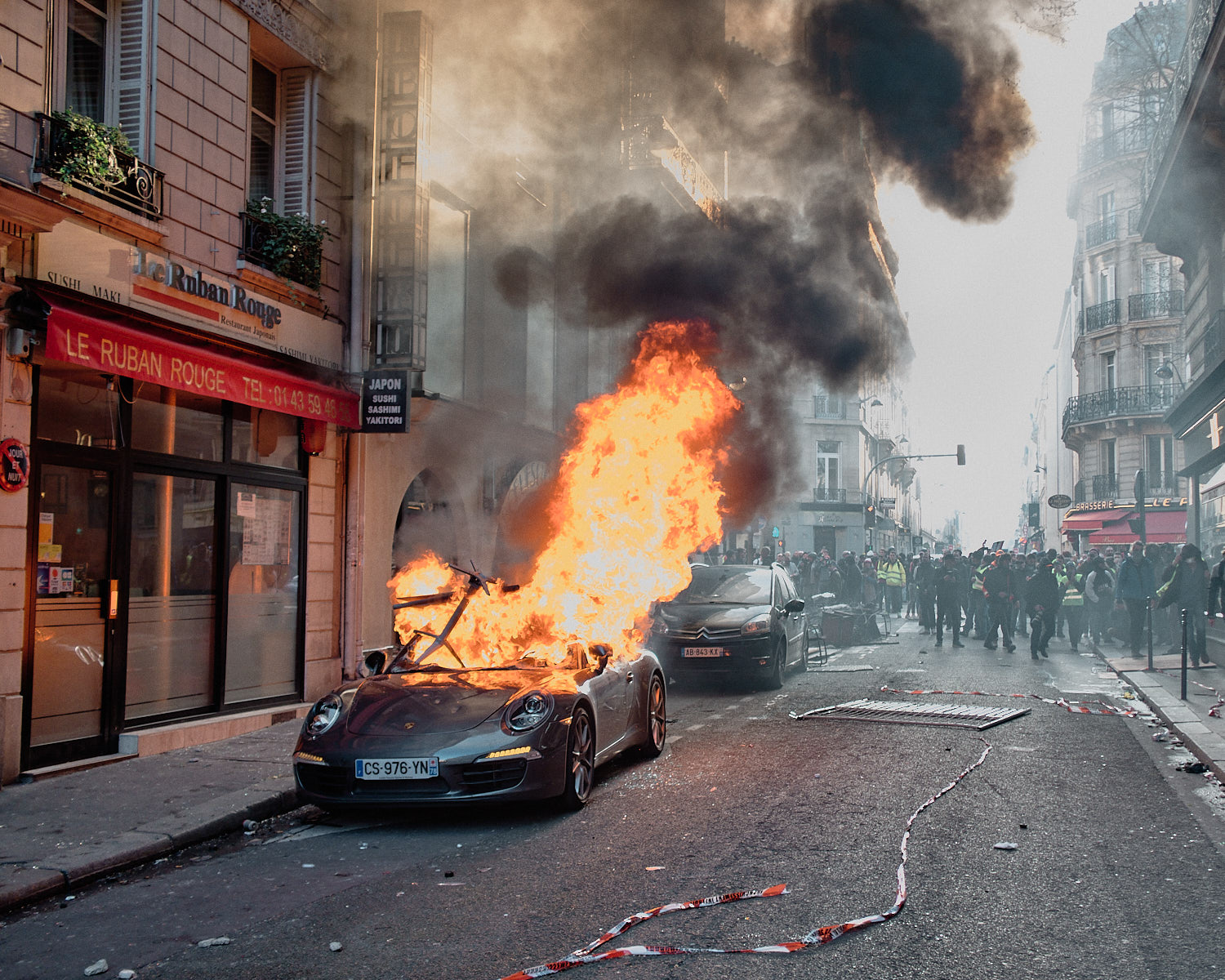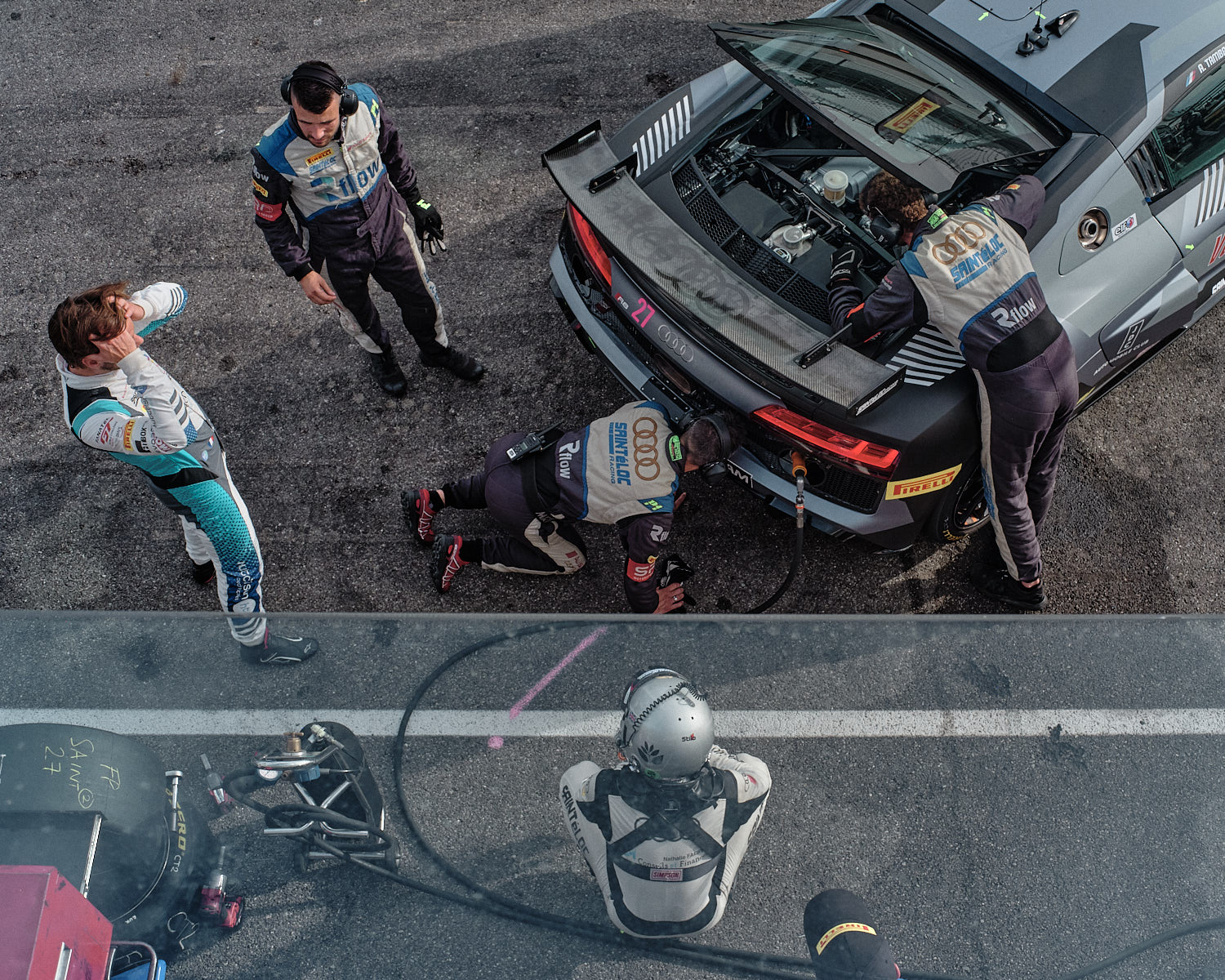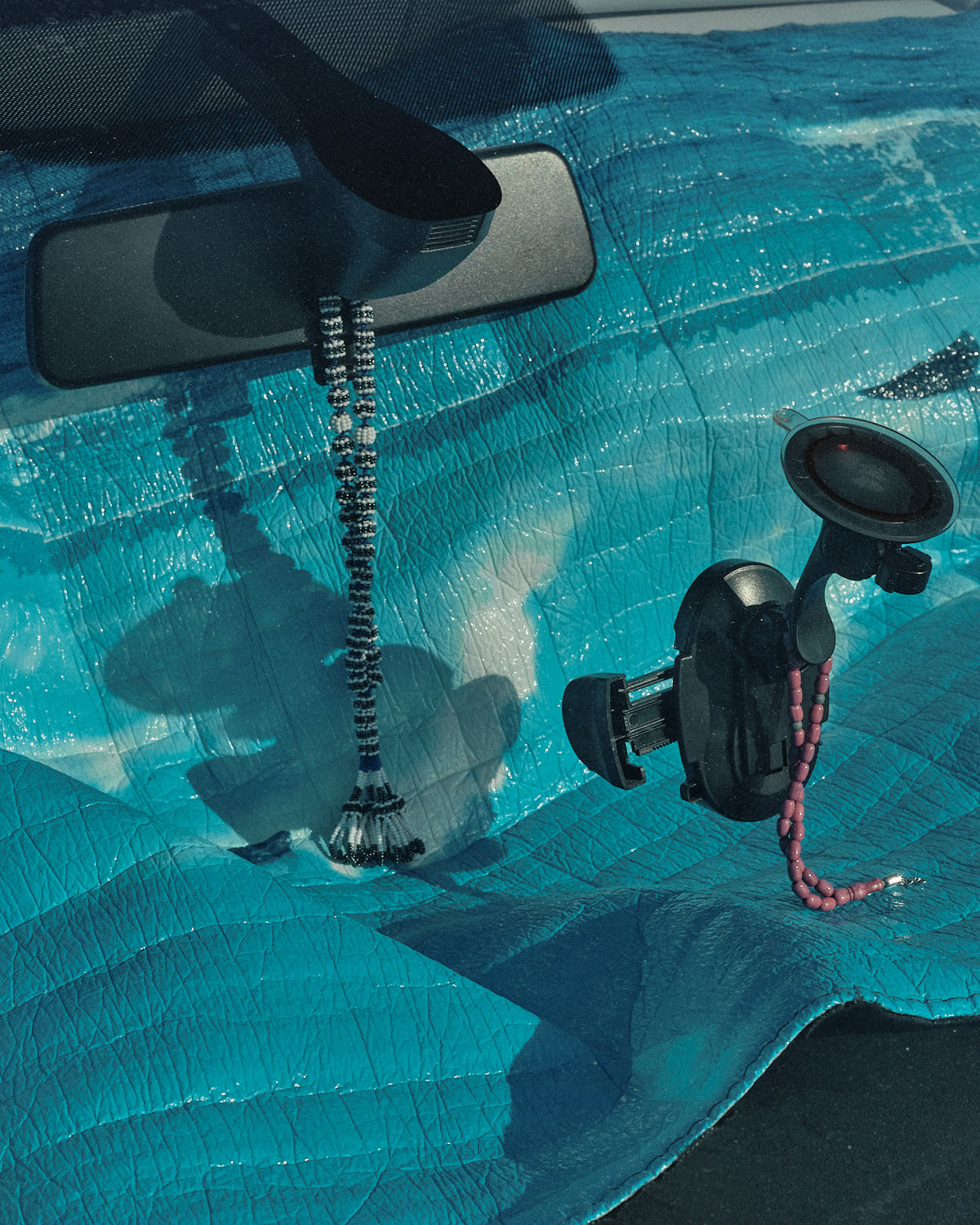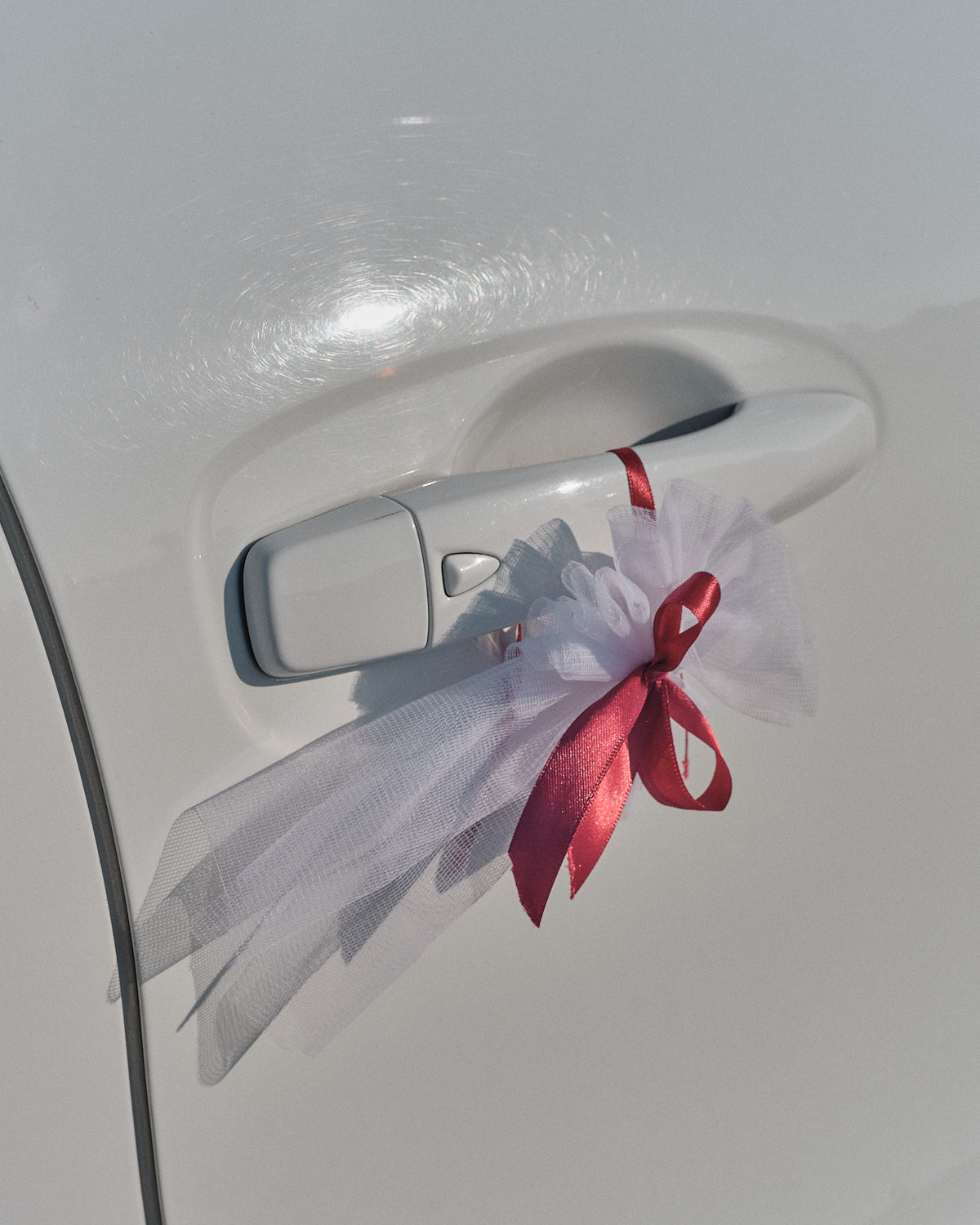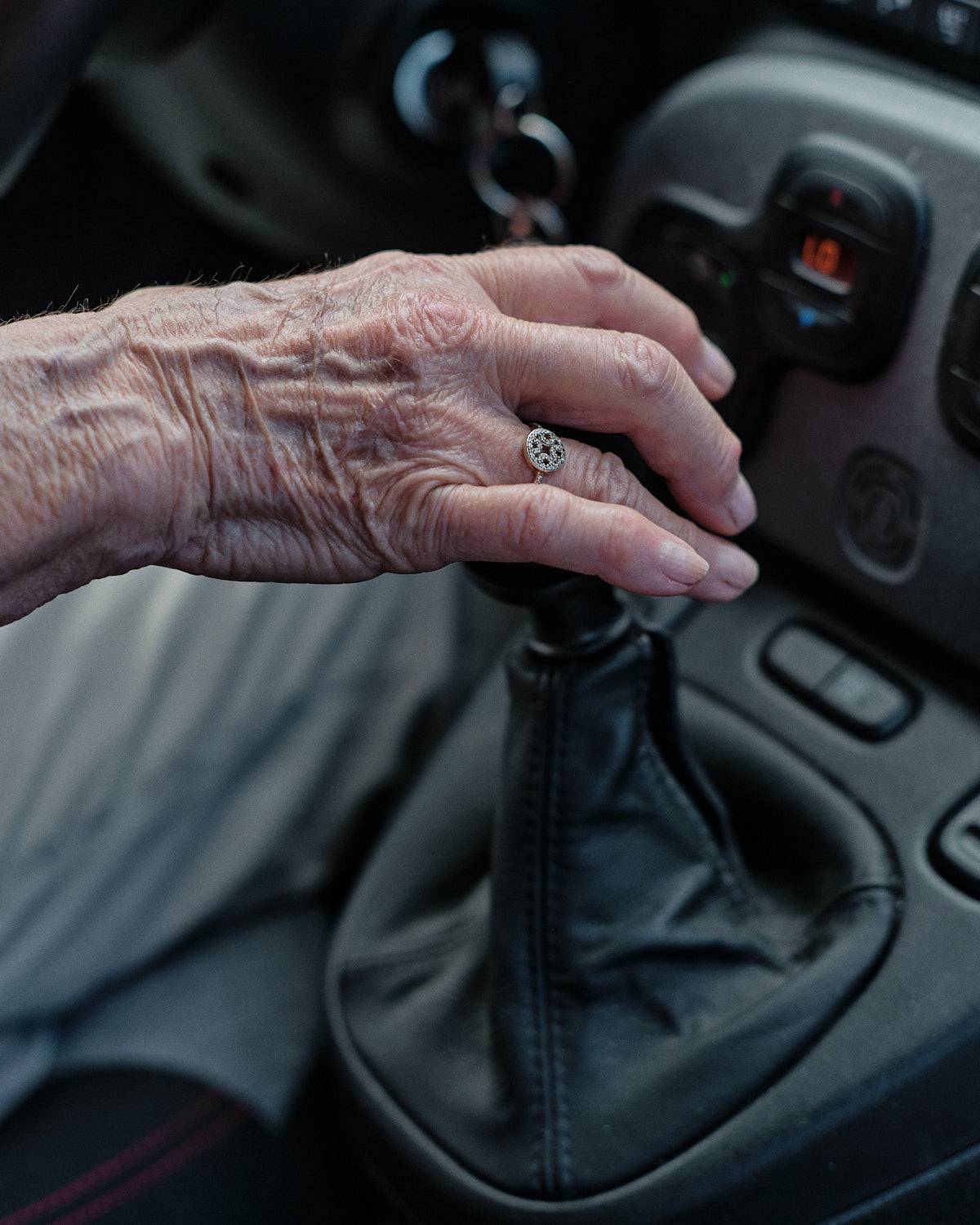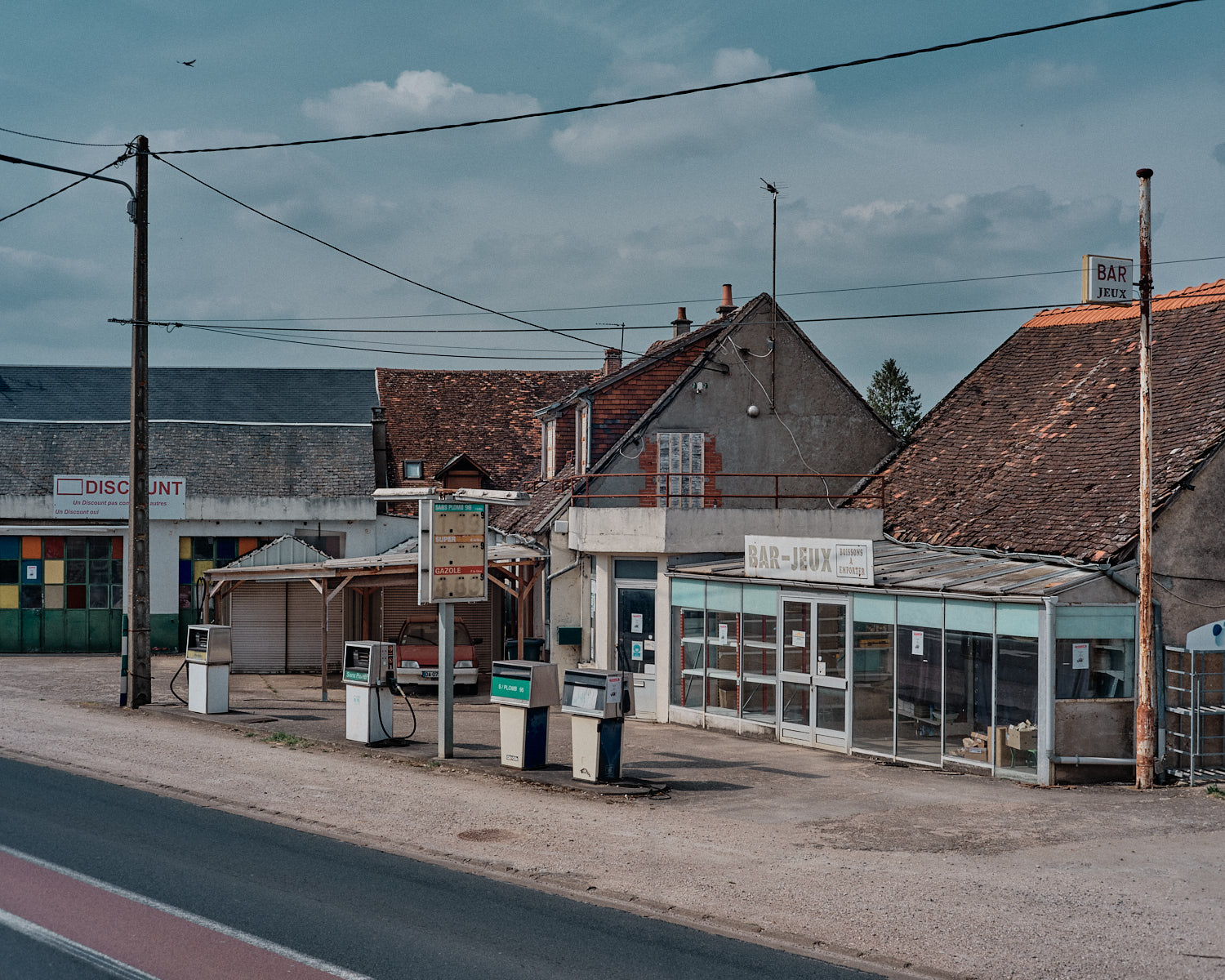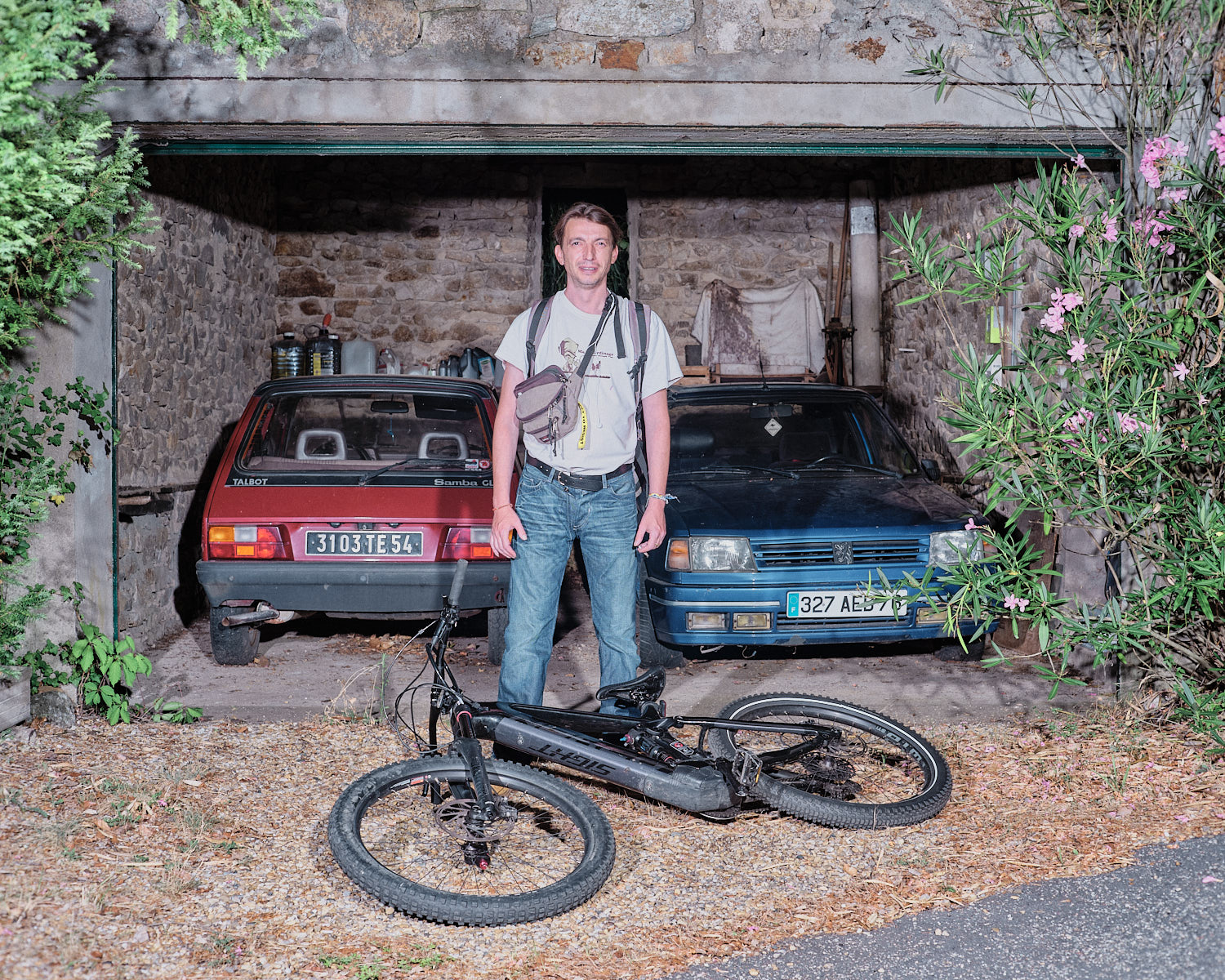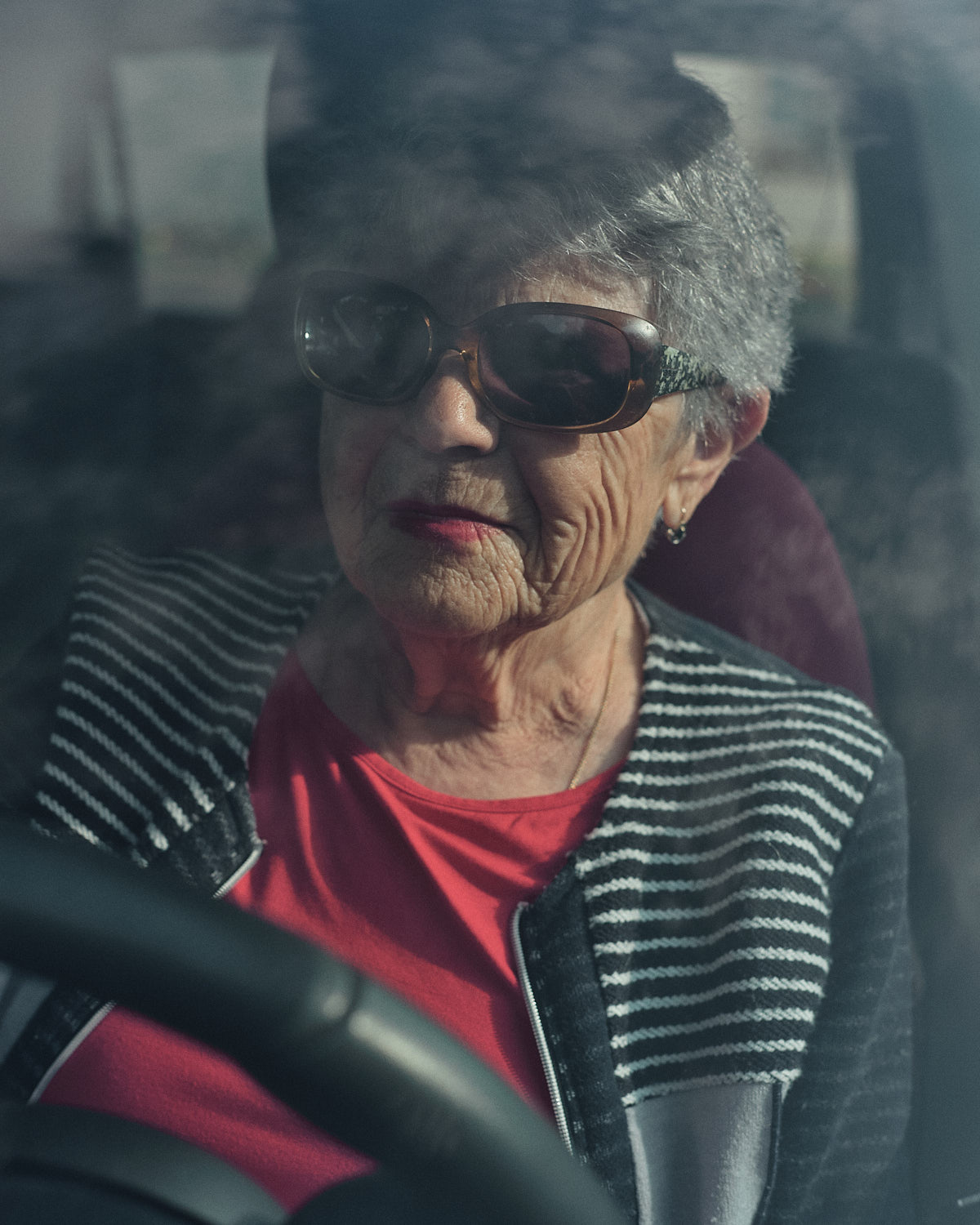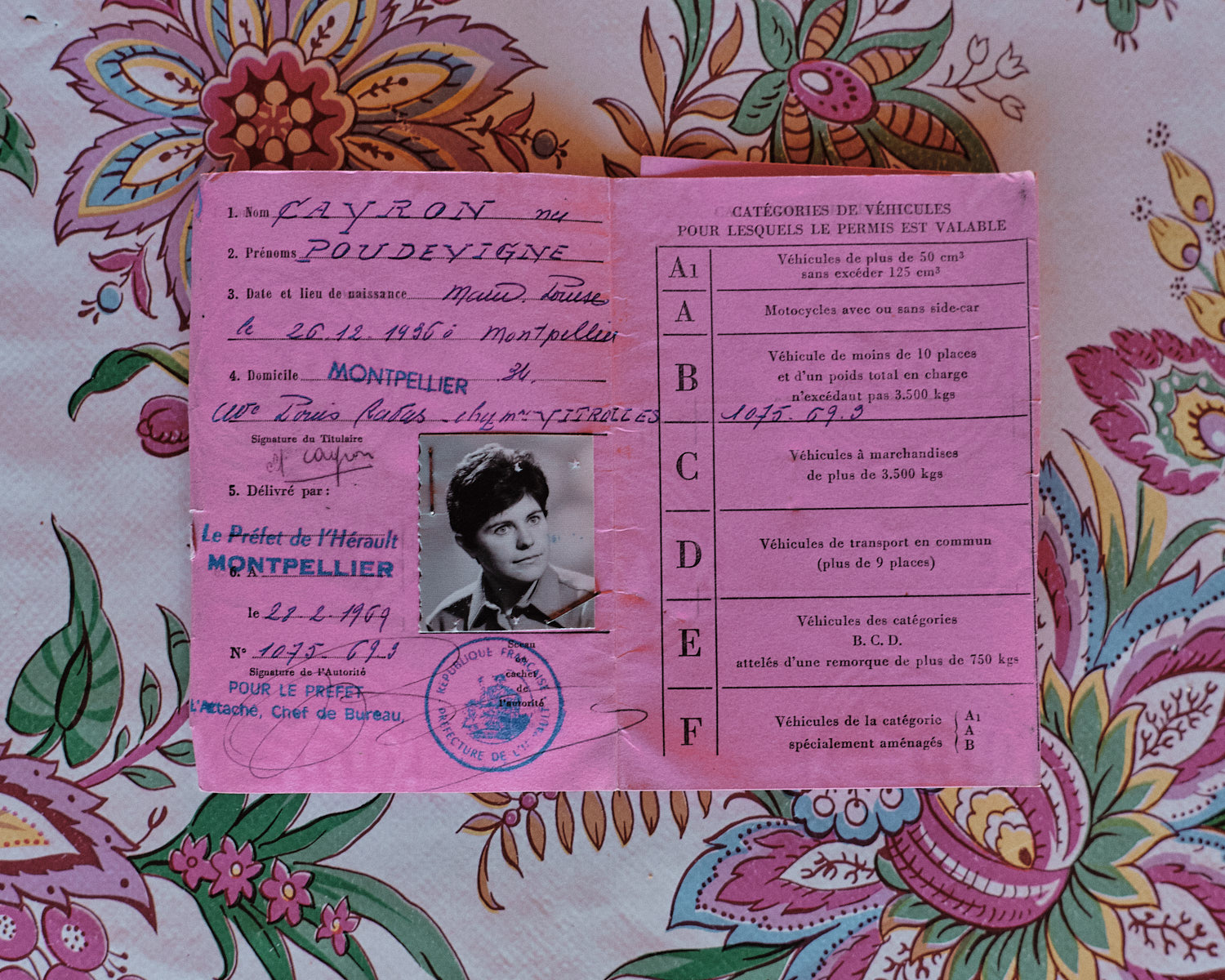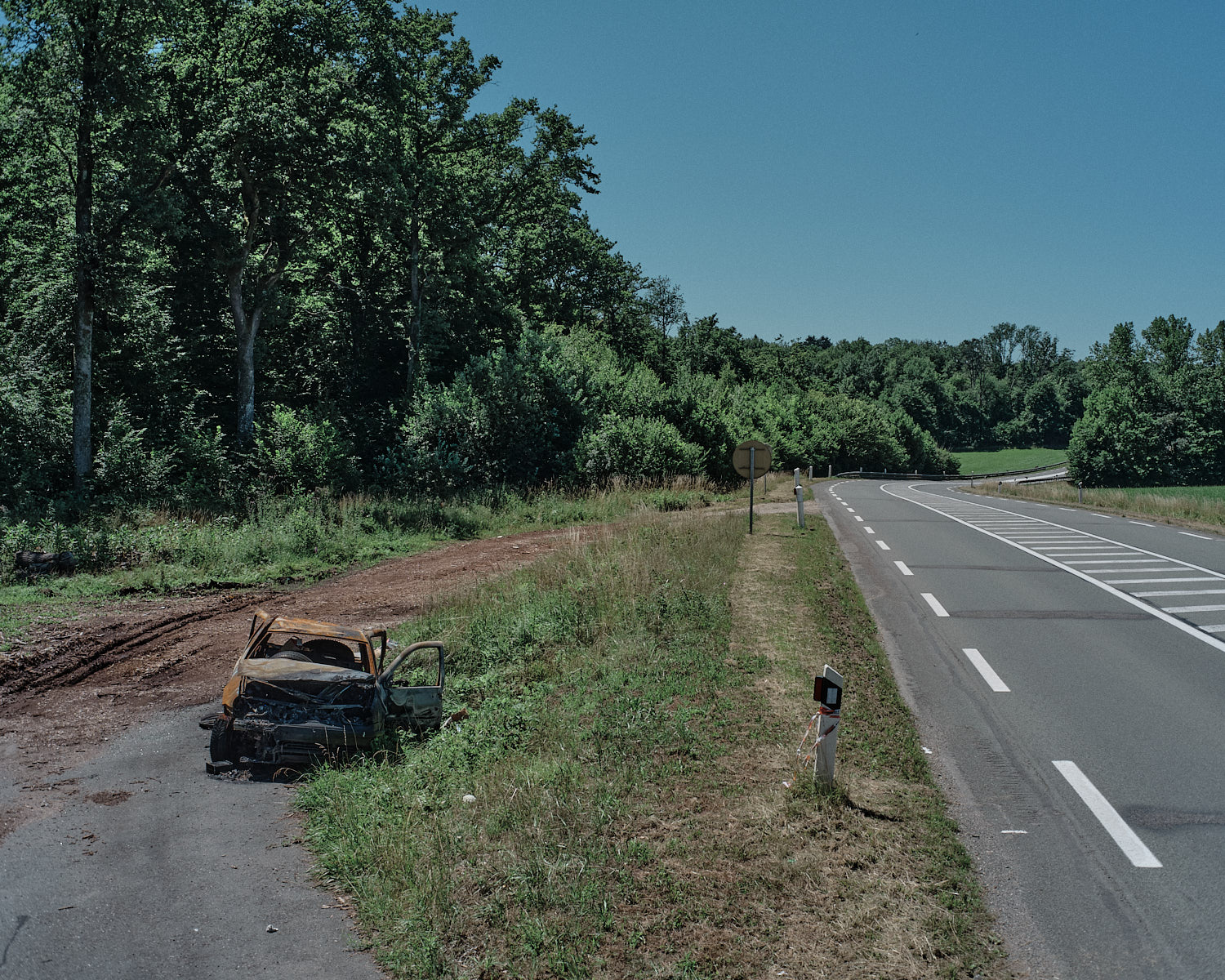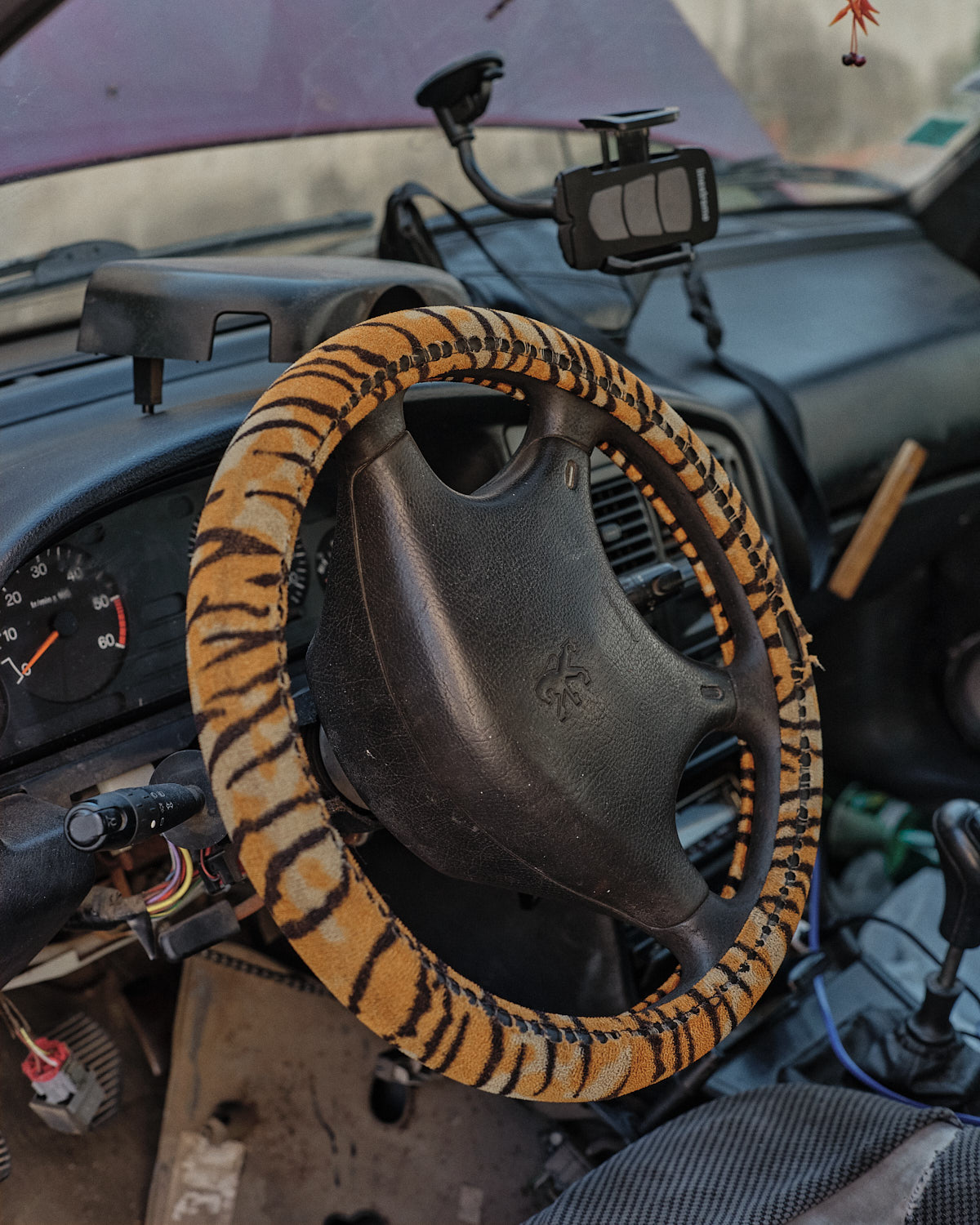
The rearview mirror adorned with trinkets or symbols of belief, the 100% leather steering wheel or the faux tiger imitation, and the distinct scent of factory plastic or cold cigarettes create a familiar ambiance within the four-wheeled sanctuary we call our second home—the omnipresent car that accompanies us in our daily lives. Surprisingly, even though 80% of French households own one, it has rarely been a subject of deep reflection in public discourse. “Léon, Mégane & Zoé” is a documentary project delving into the intricate relationship between the French people and their beloved automobiles.
The role of the car in different regions varies significantly, highlighting the unequal access to mobility. In rural and remote areas, it often represents the primary means of transportation, while in urban centers, it faces increasing restrictions through low-emission zones. As a result, the car has not only molded the landscapes of our territories but also influenced our lifestyles and perspectives. Beyond being a mere mode of transport, it embodies a collective imagination of grandiosity, speed, and freedom. The advent of social media has further cultivated the car’s allure, with the “van life” trend perpetuating the cult of freedom associated with it.
Deeply intertwined with our memories, the car becomes an inseparable companion throughout various life stages. Car manufacturers skillfully capitalize on this emotional attachment by assigning human names to car models that roll off the assembly lines (e.g., Seat Leon, Renault Megane, Renault Zoe).
Despite its undeniable significance, the car now faces potential threats to its dominance. Yet, it remains a central element in modern societies, serving as a poignant symbol of our times. To photograph it is to photograph society as a whole.
This documentary work was funded by the Grande Commande Photographique, a major photographic commission launched by the French Ministry of Culture and overseen by the National Library of France (BnF).
